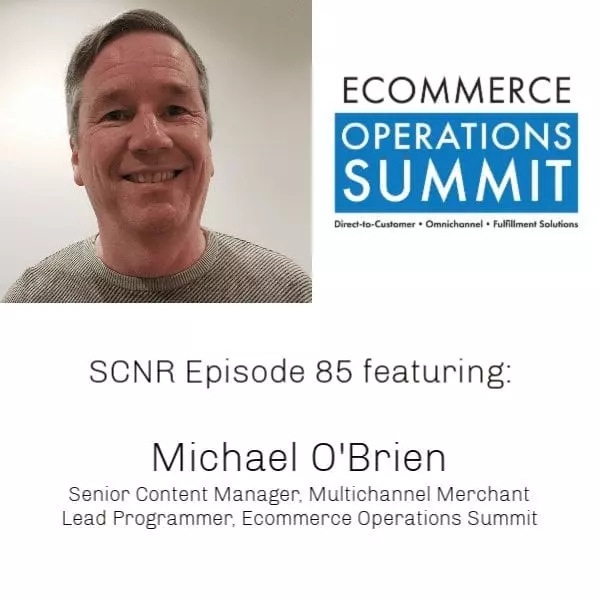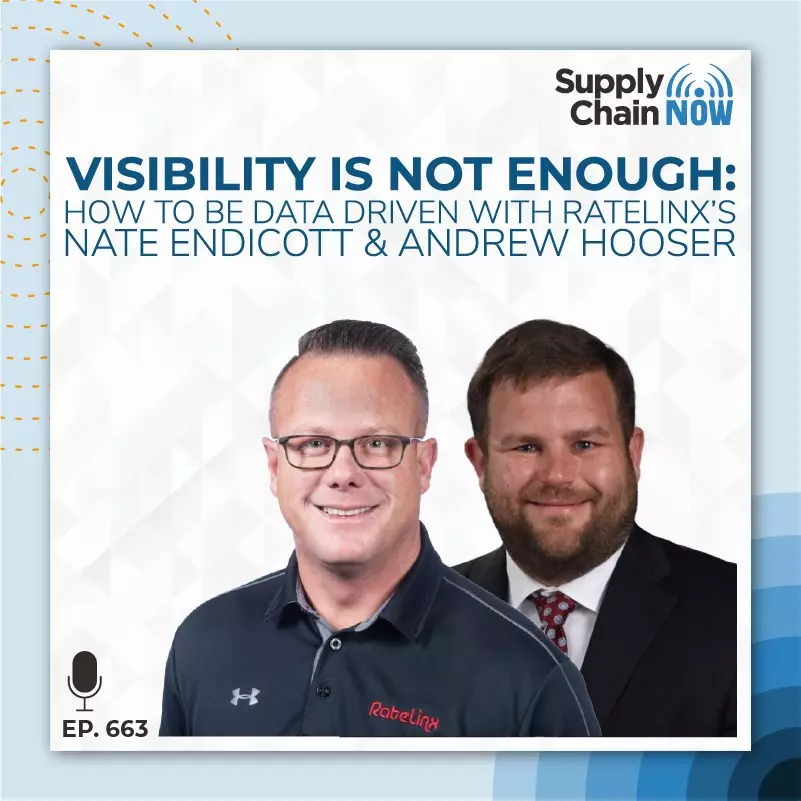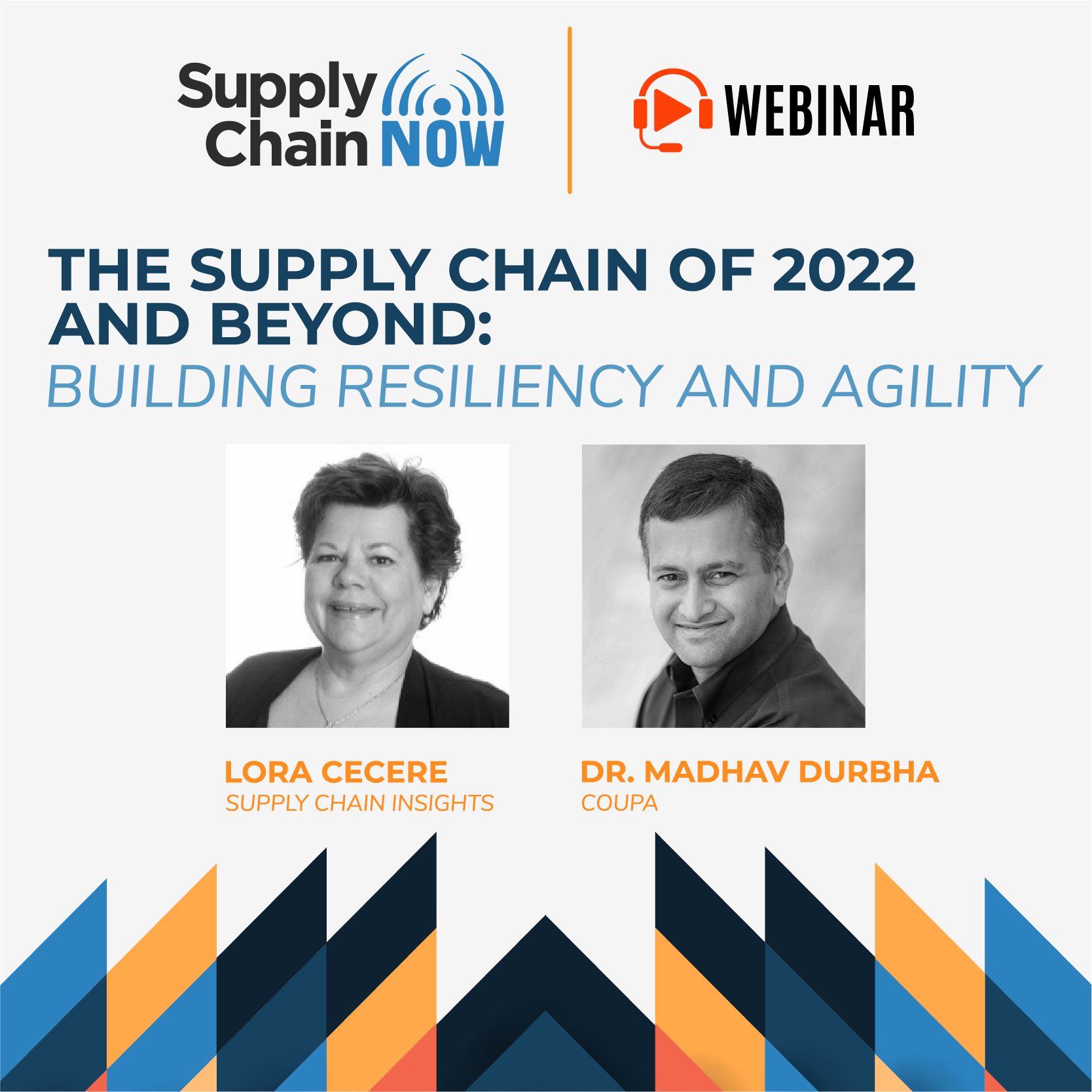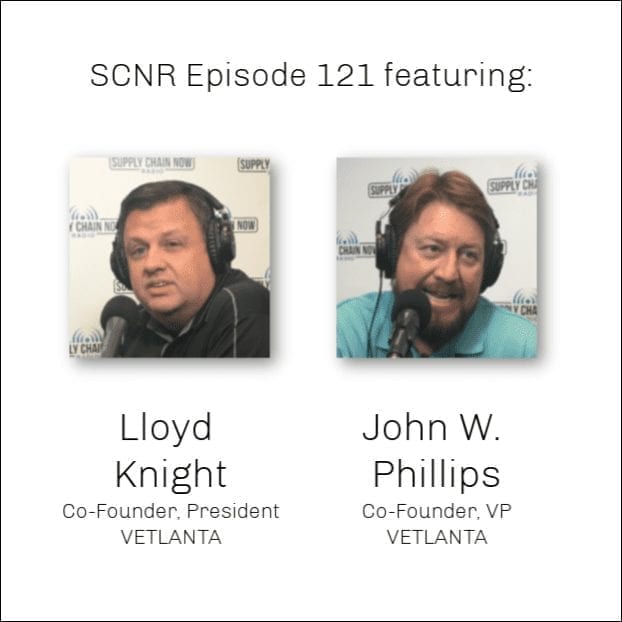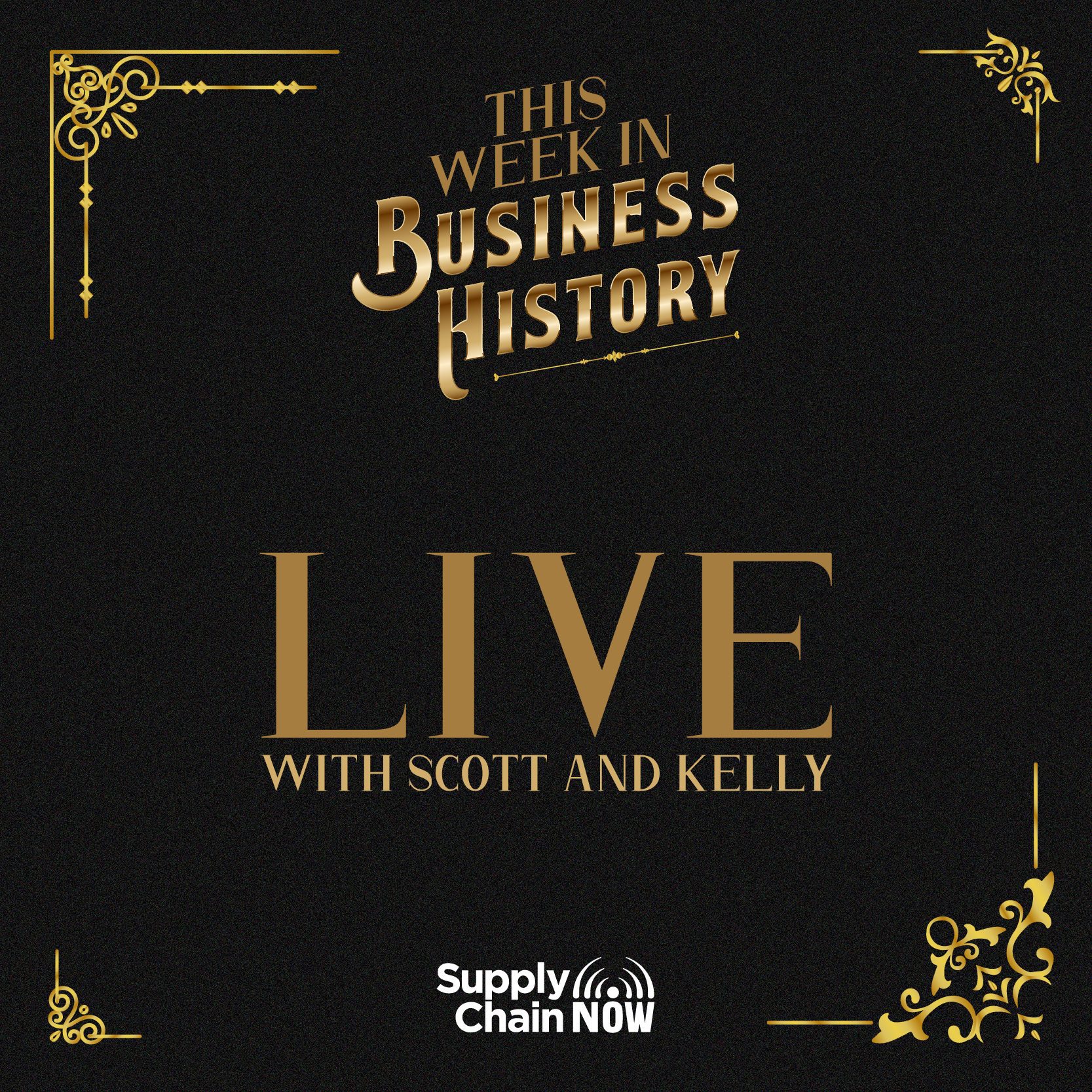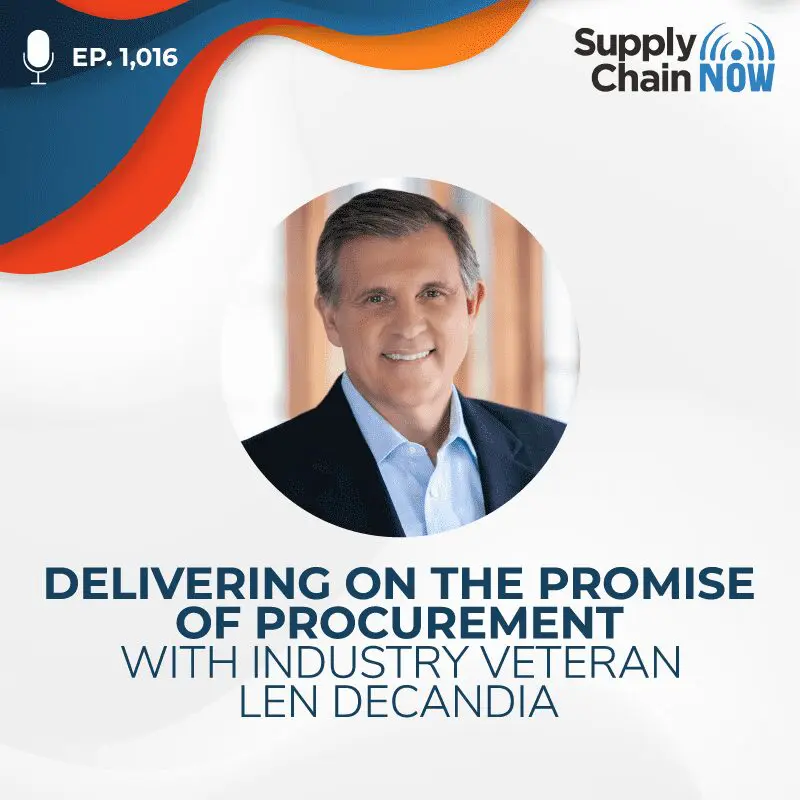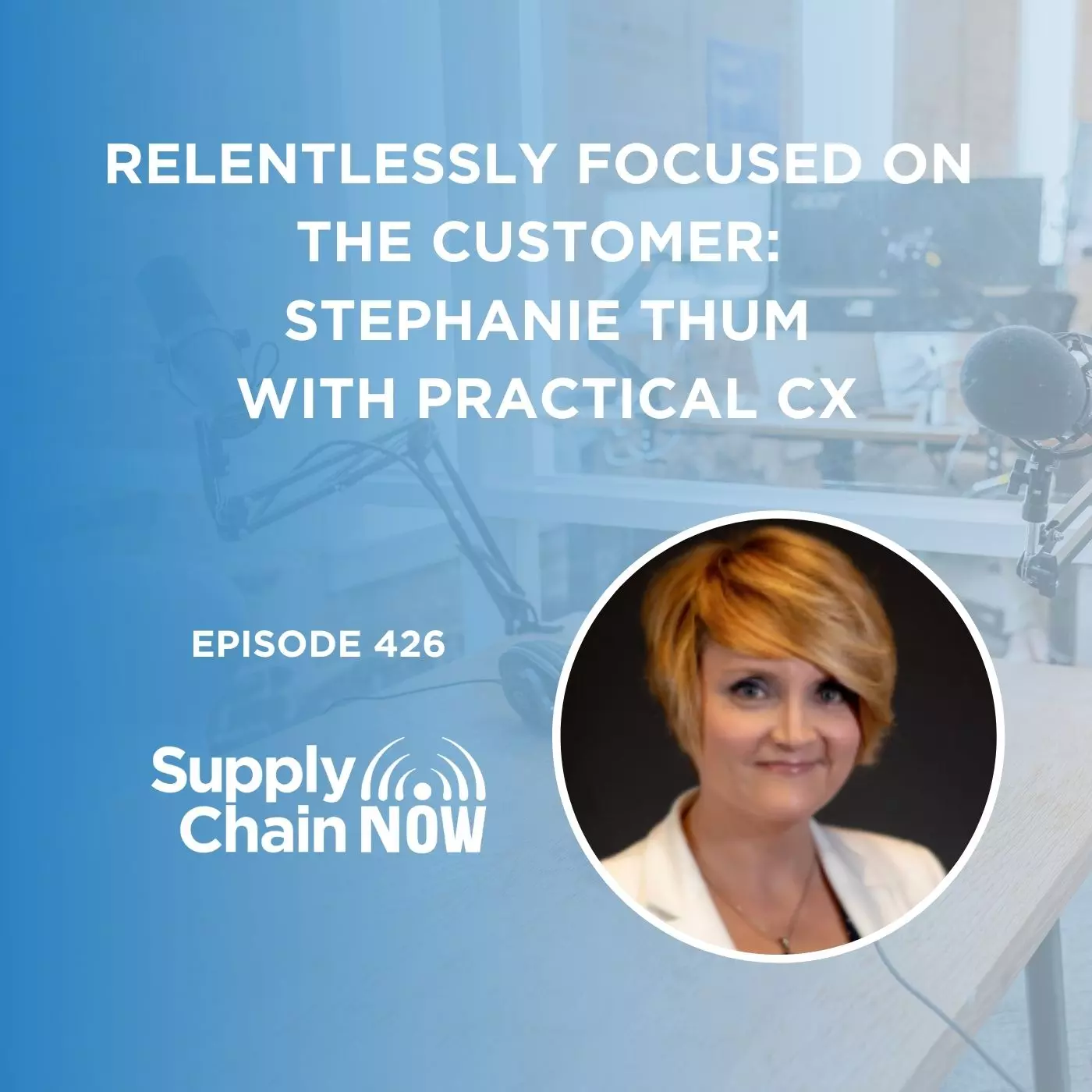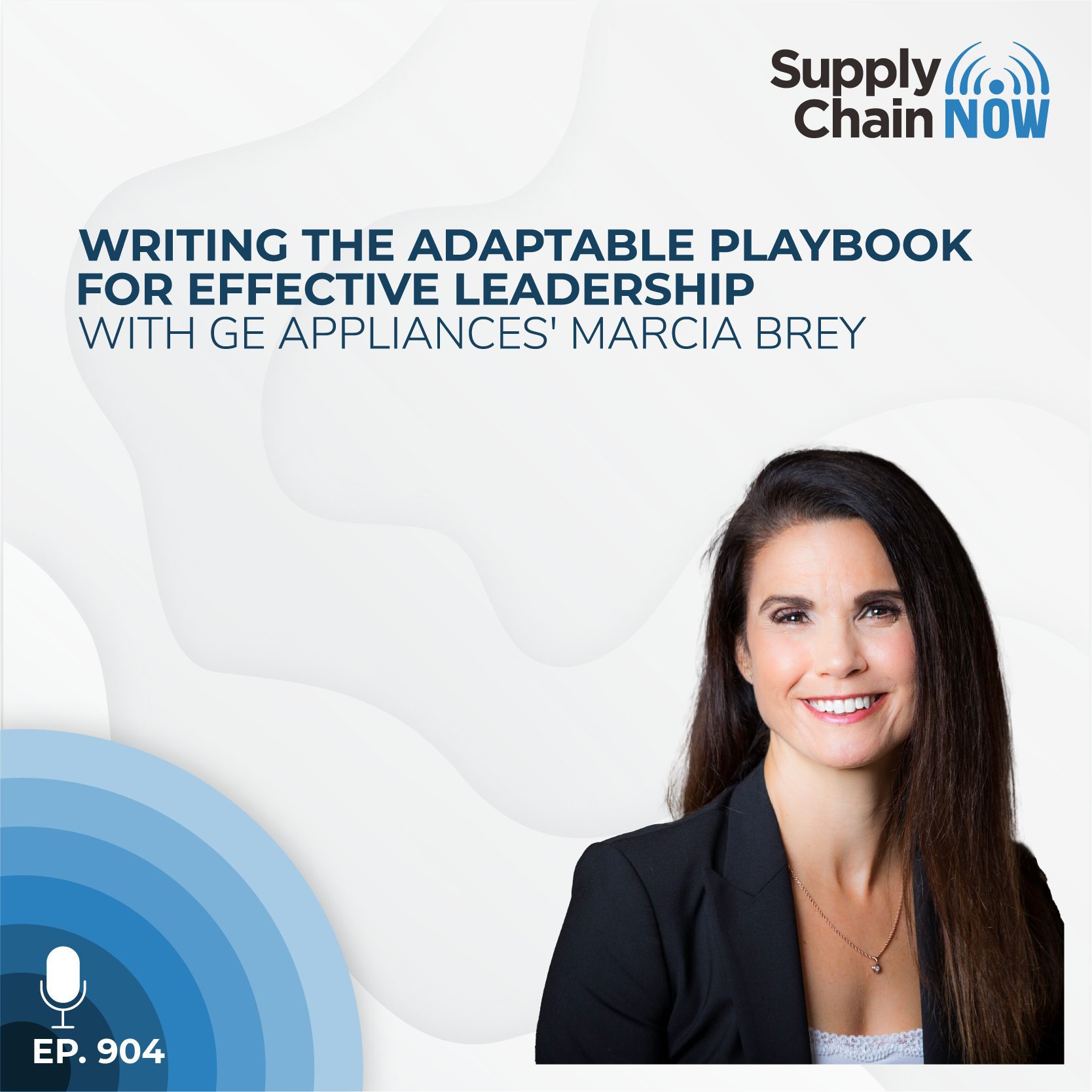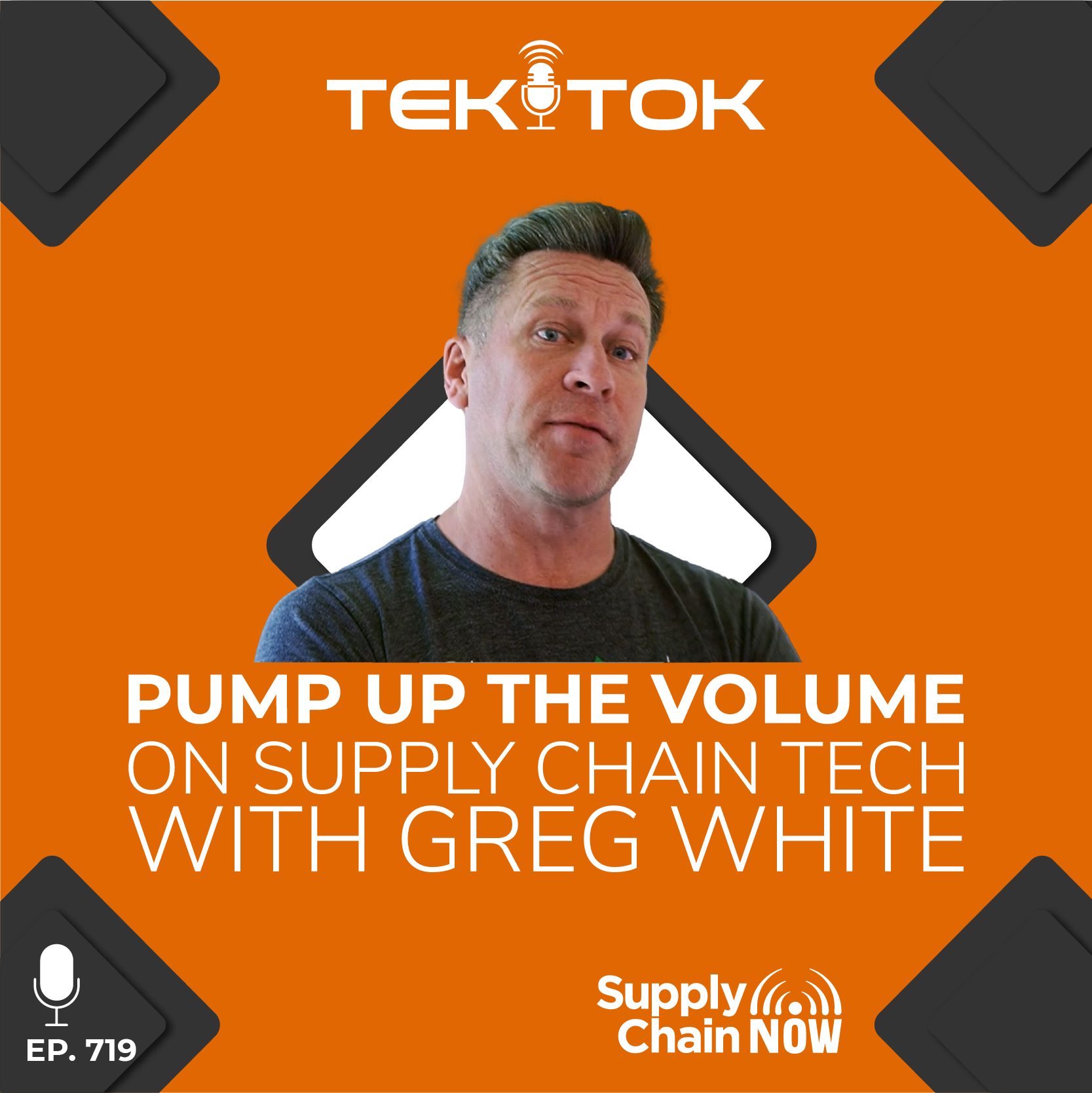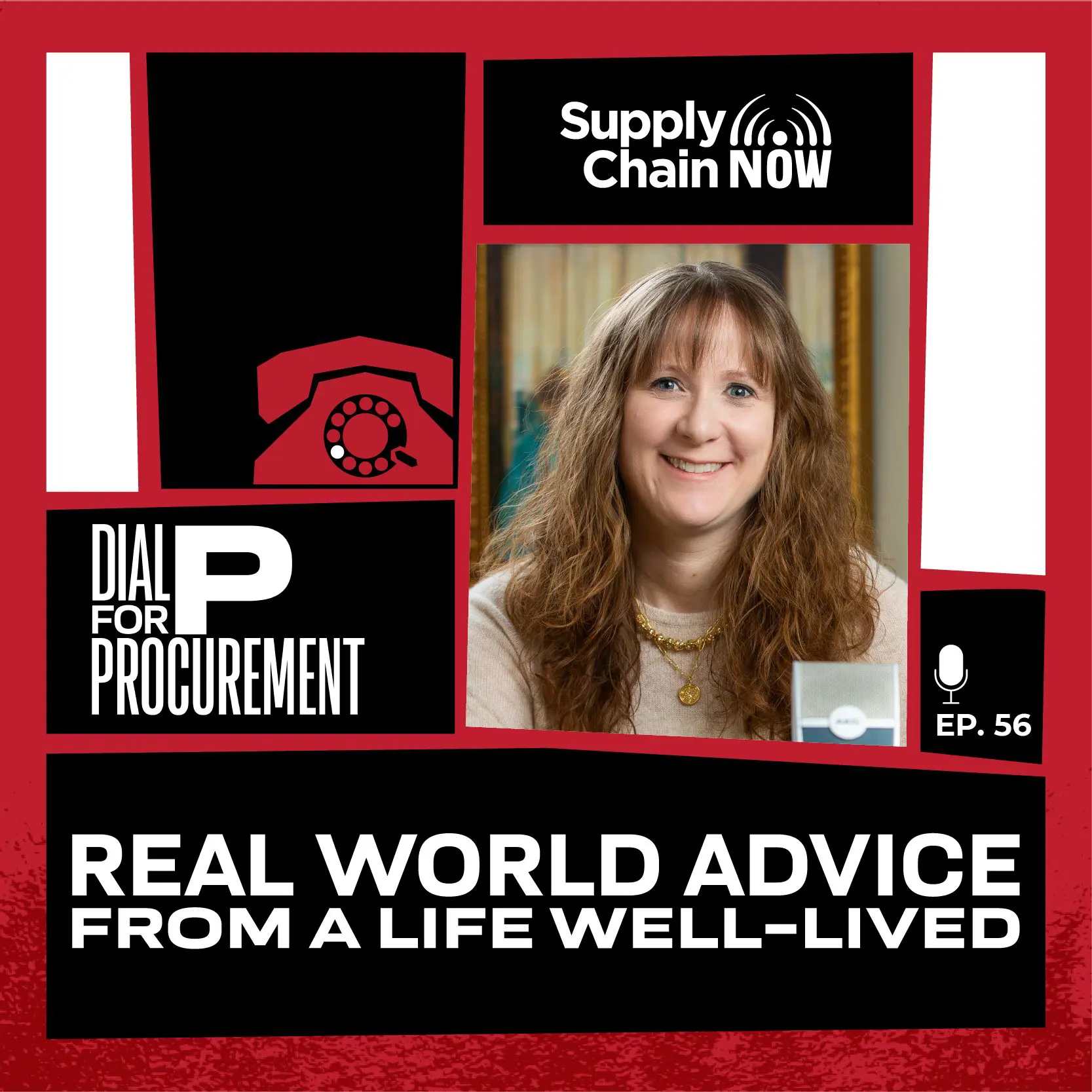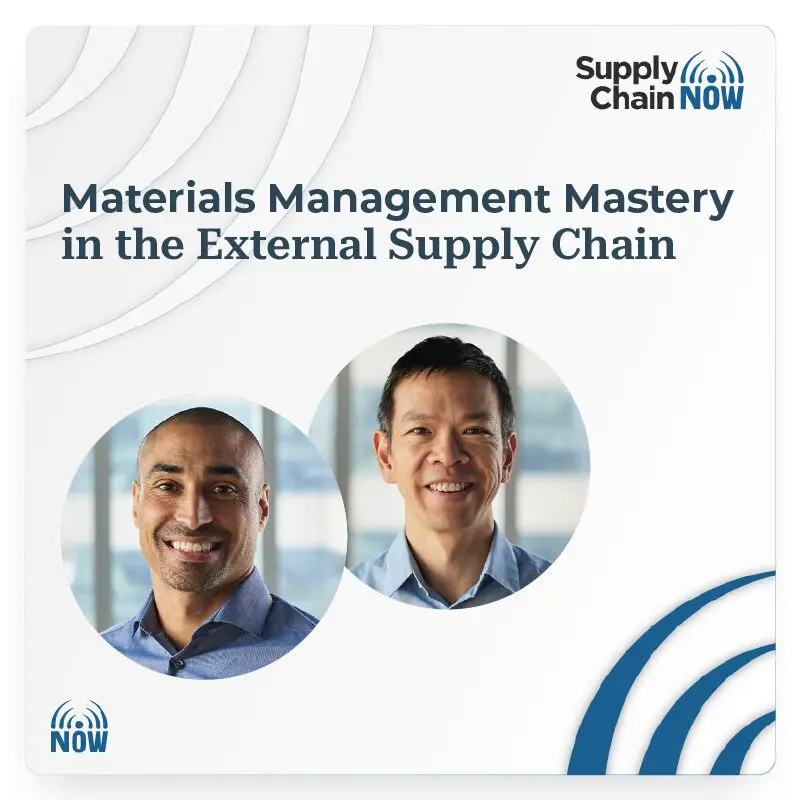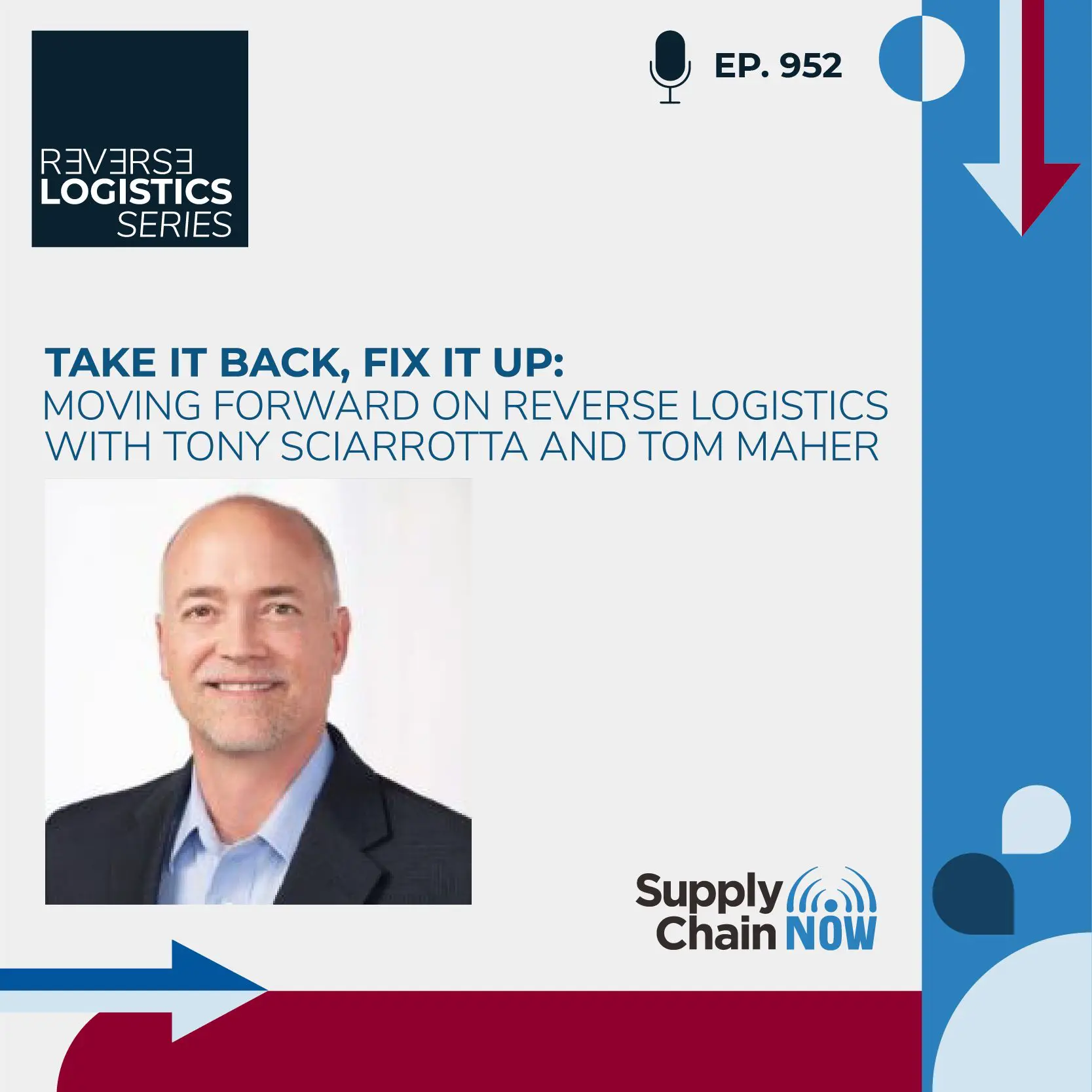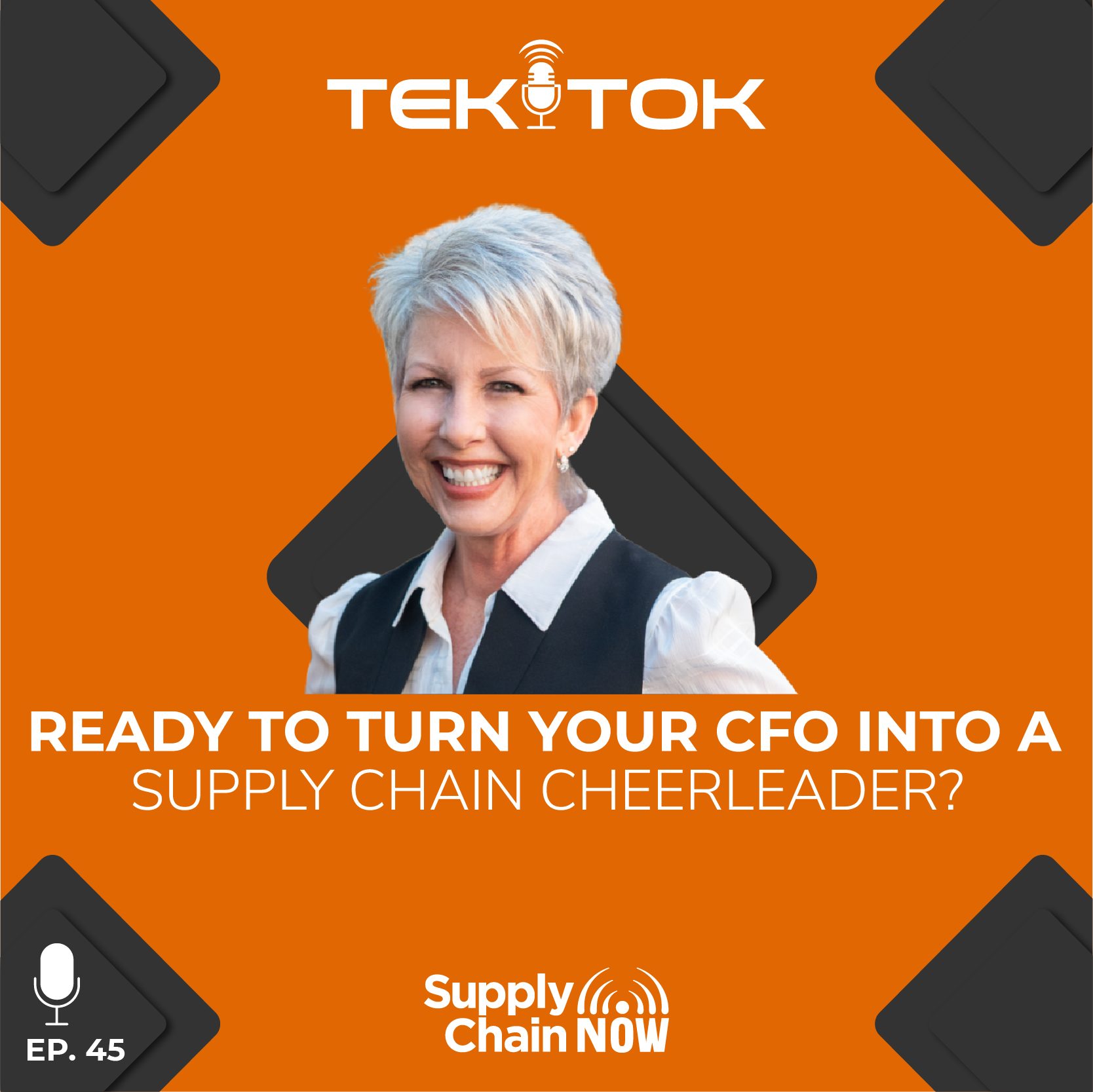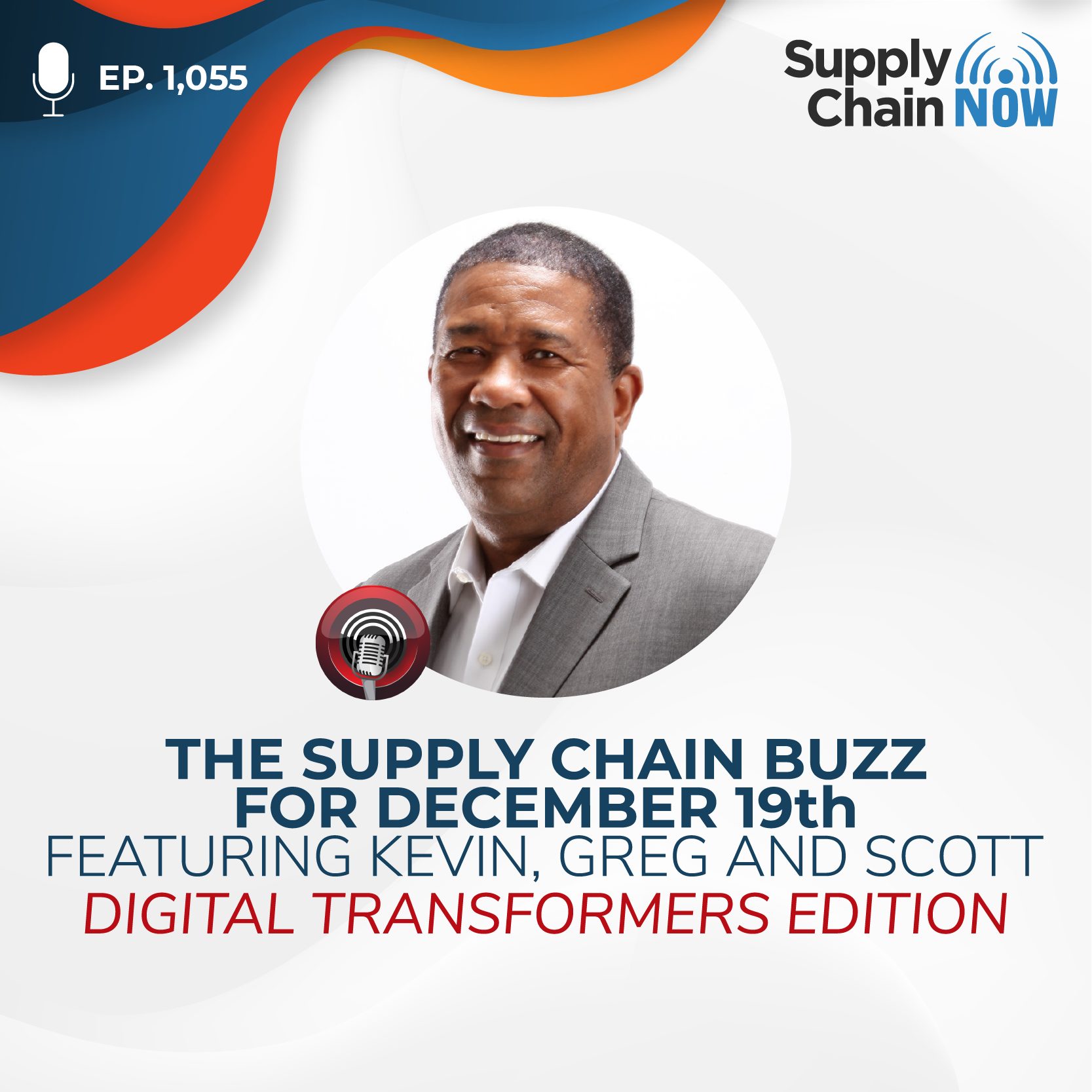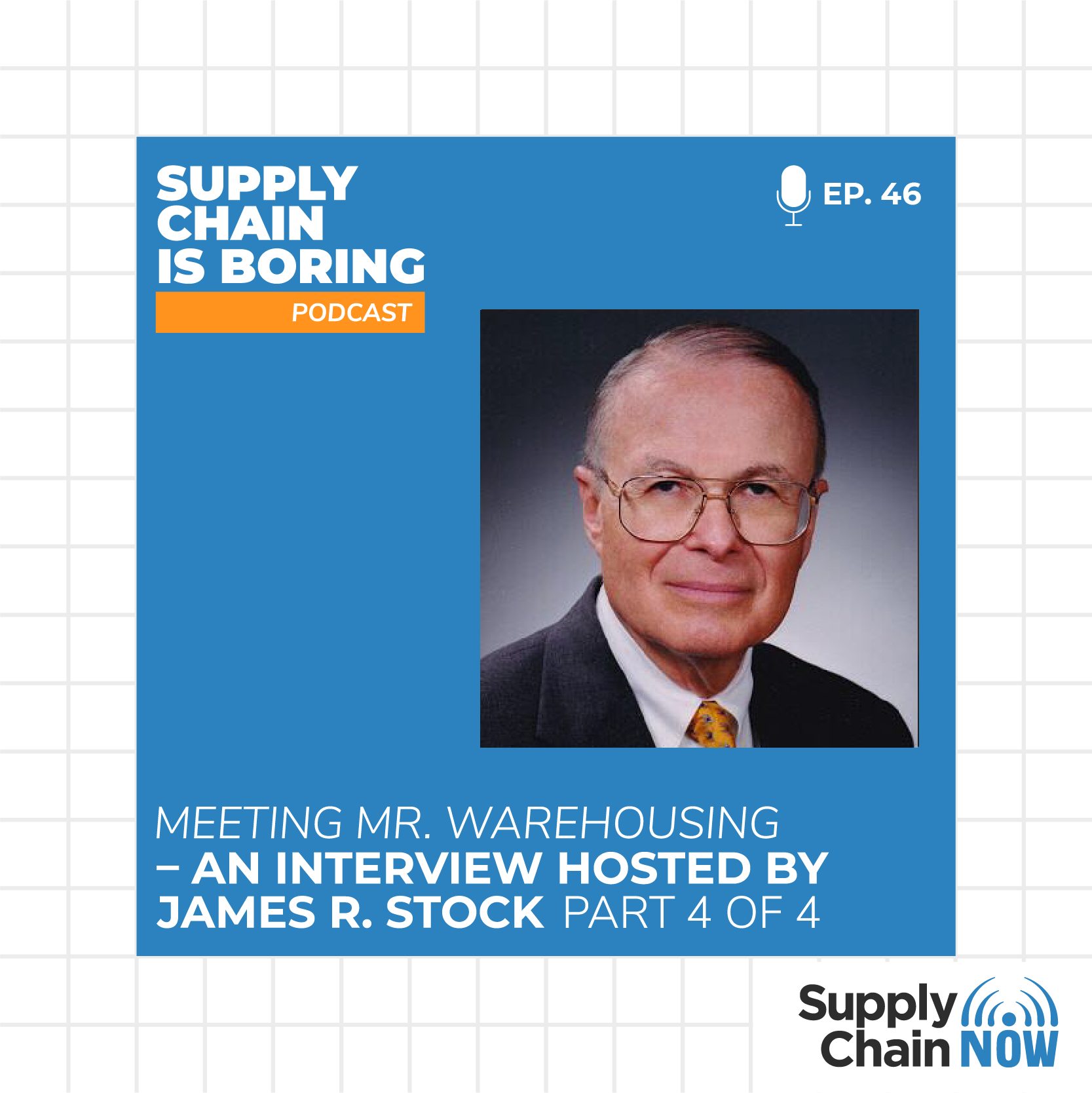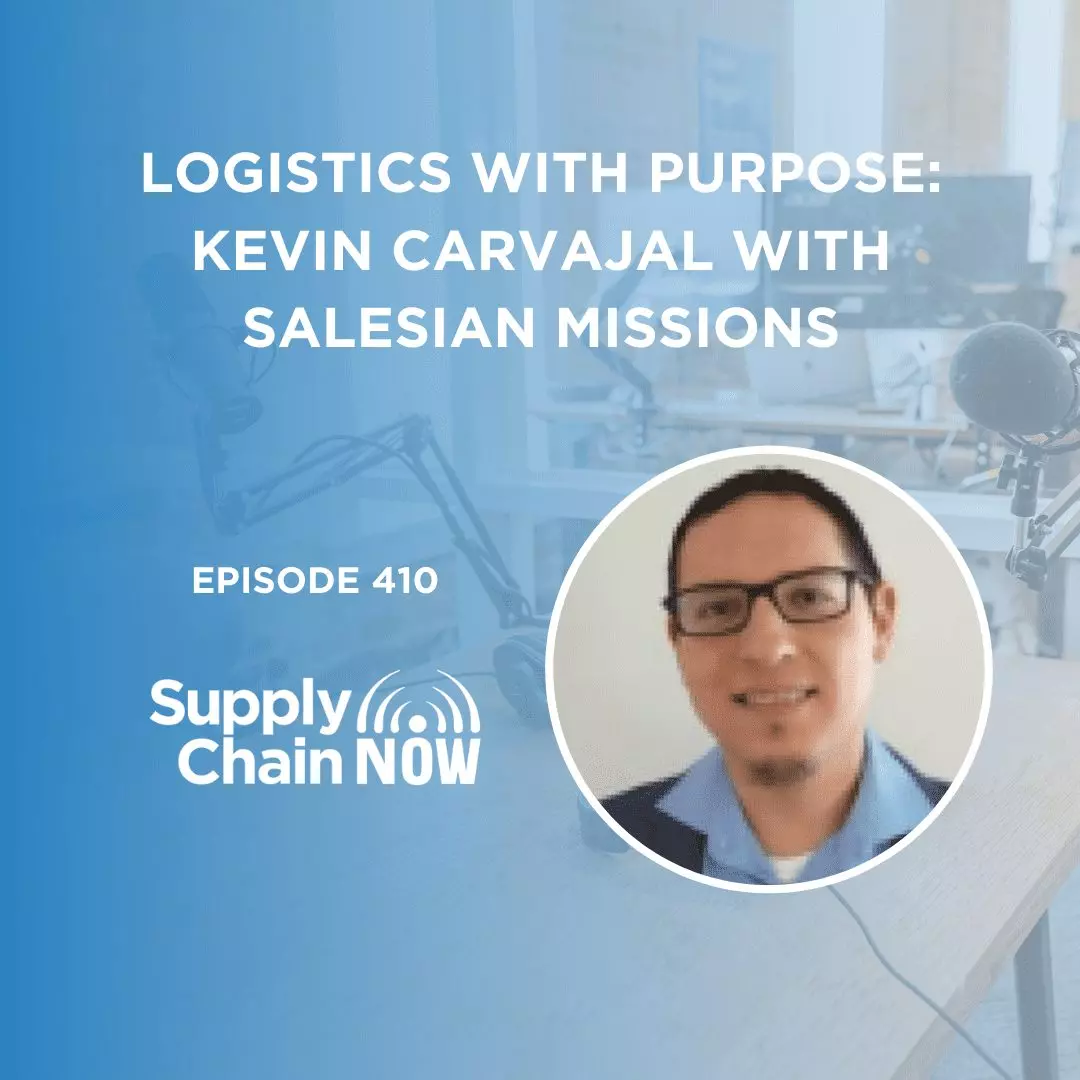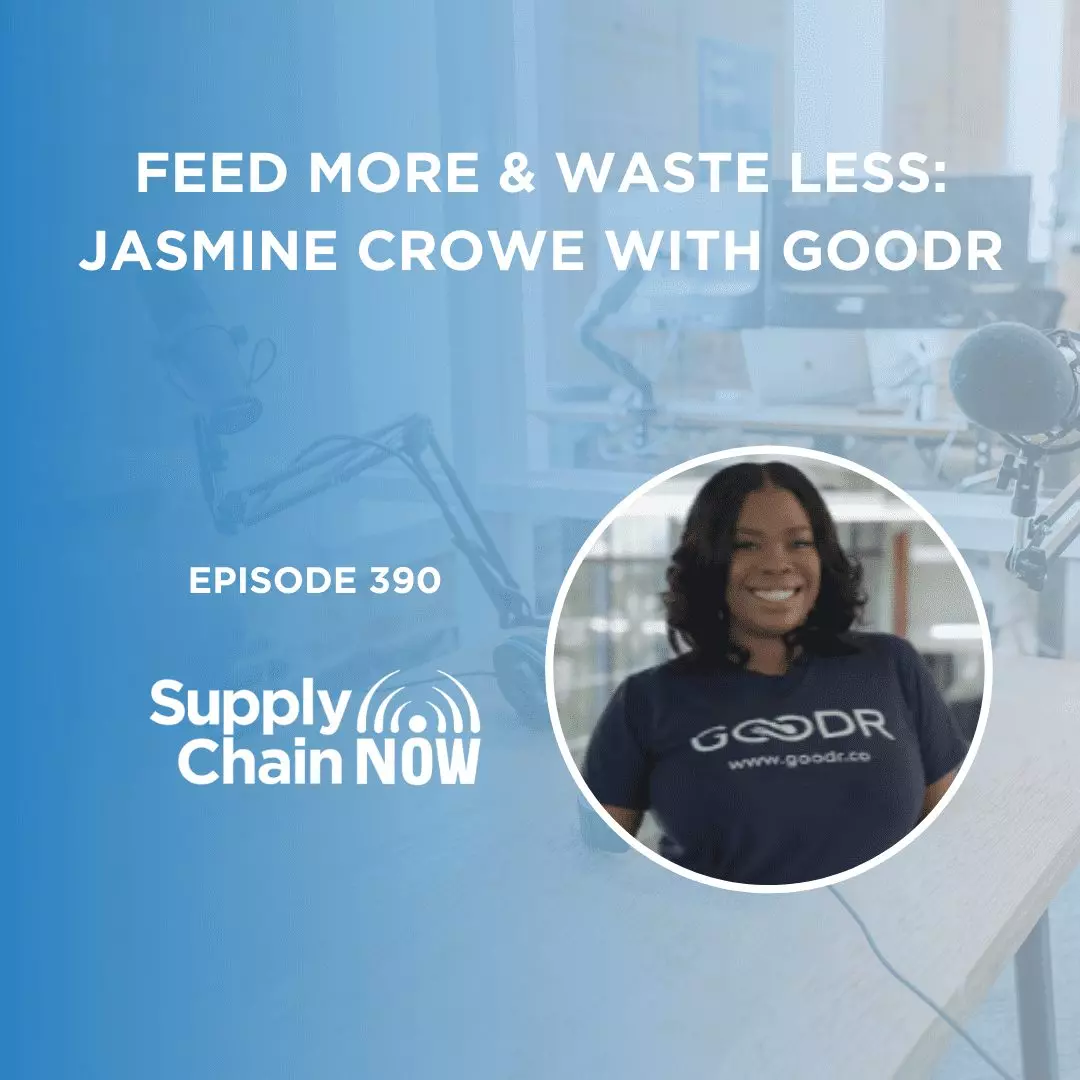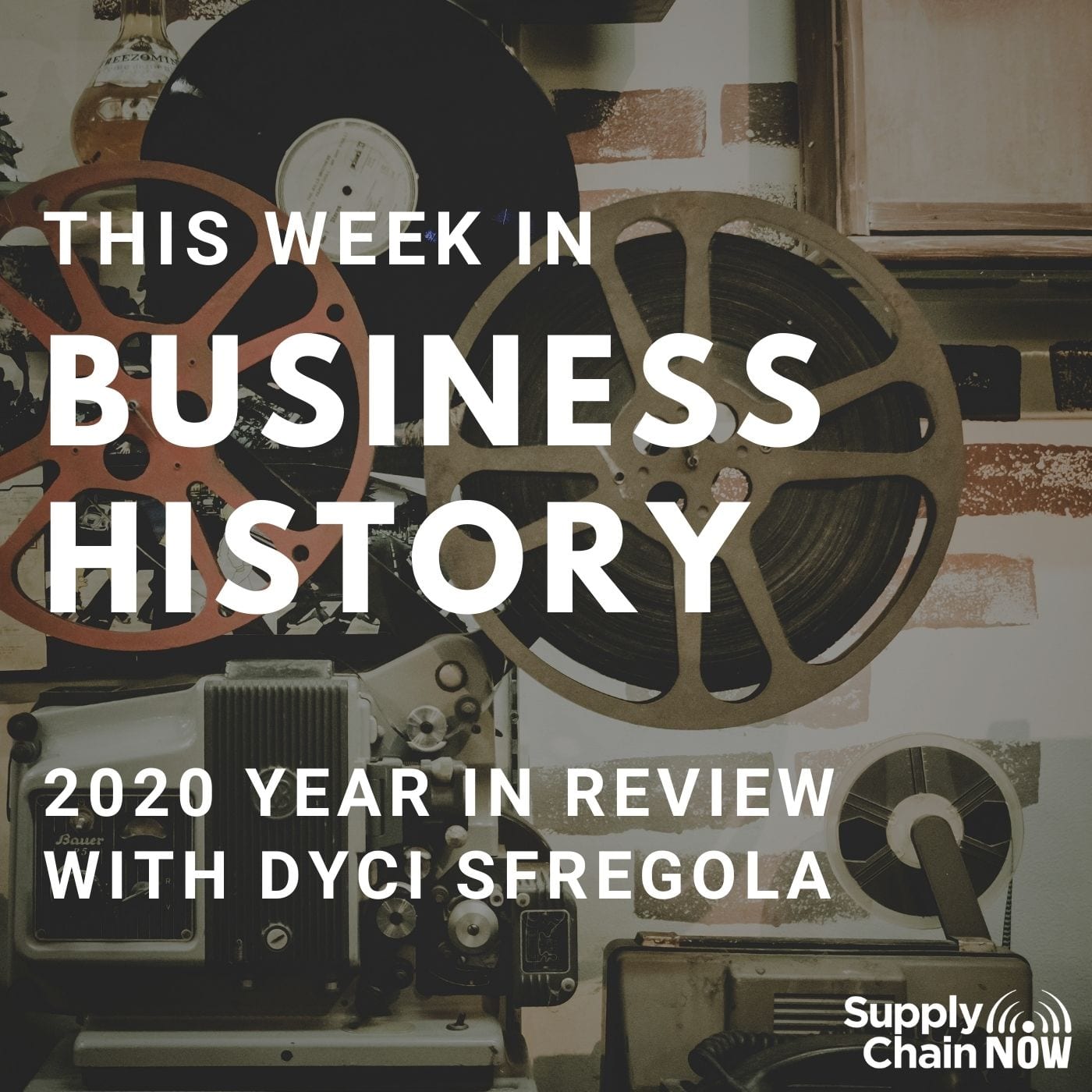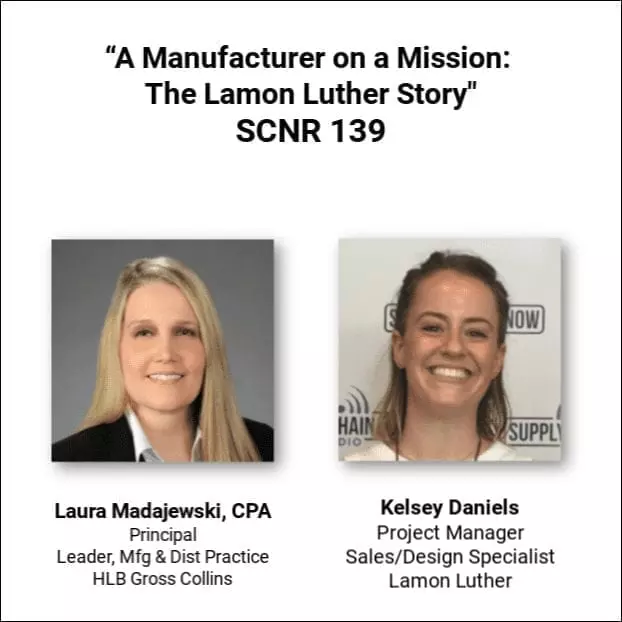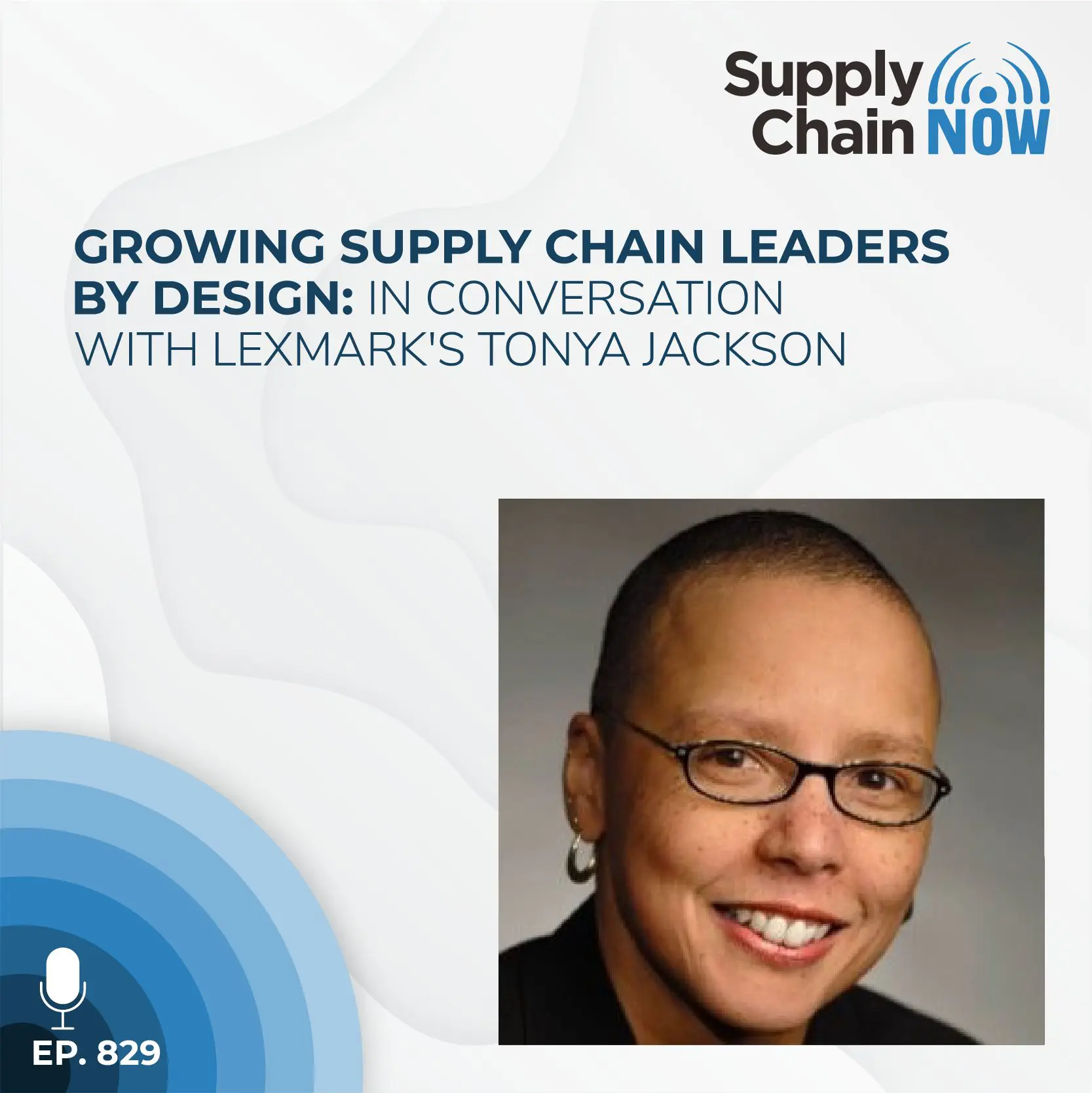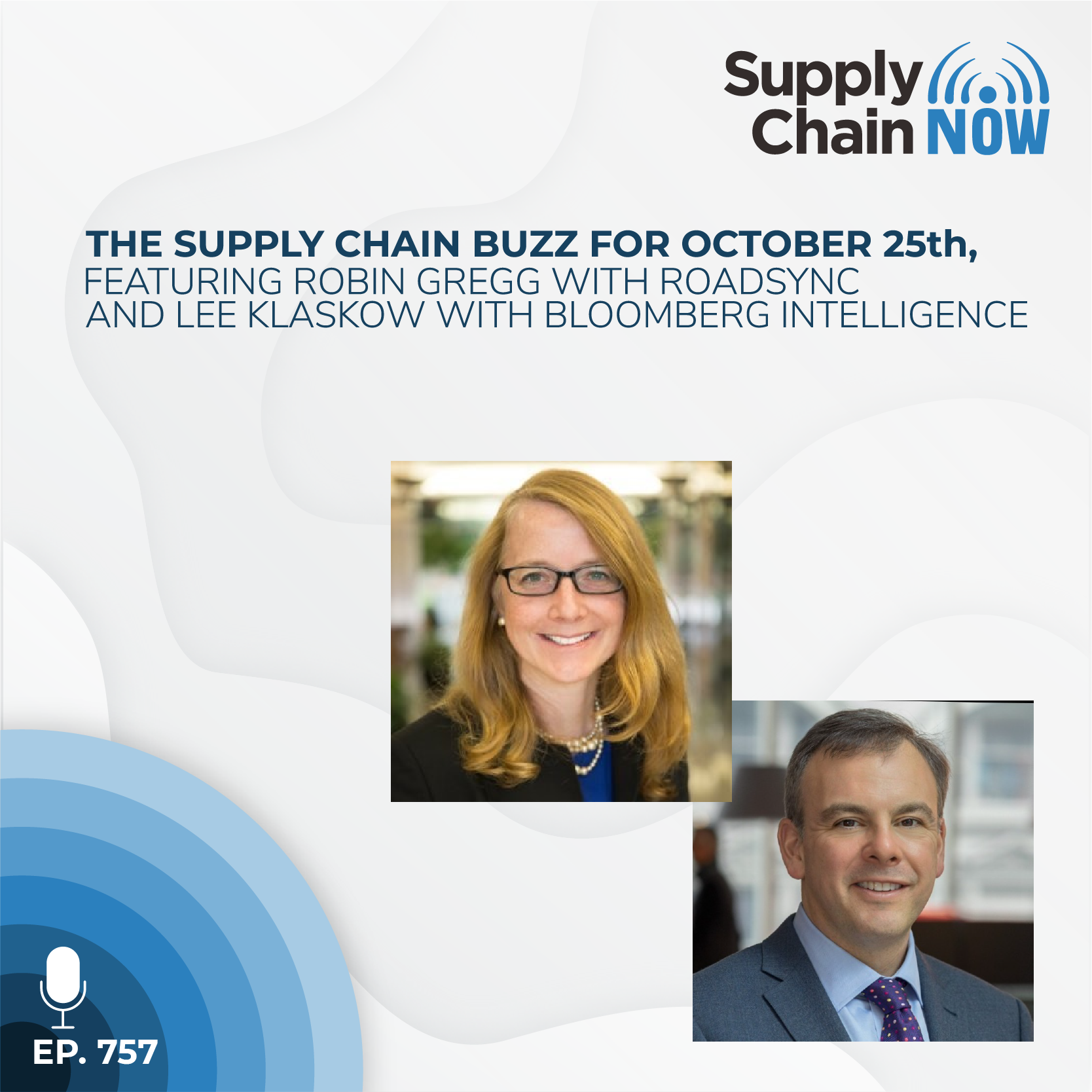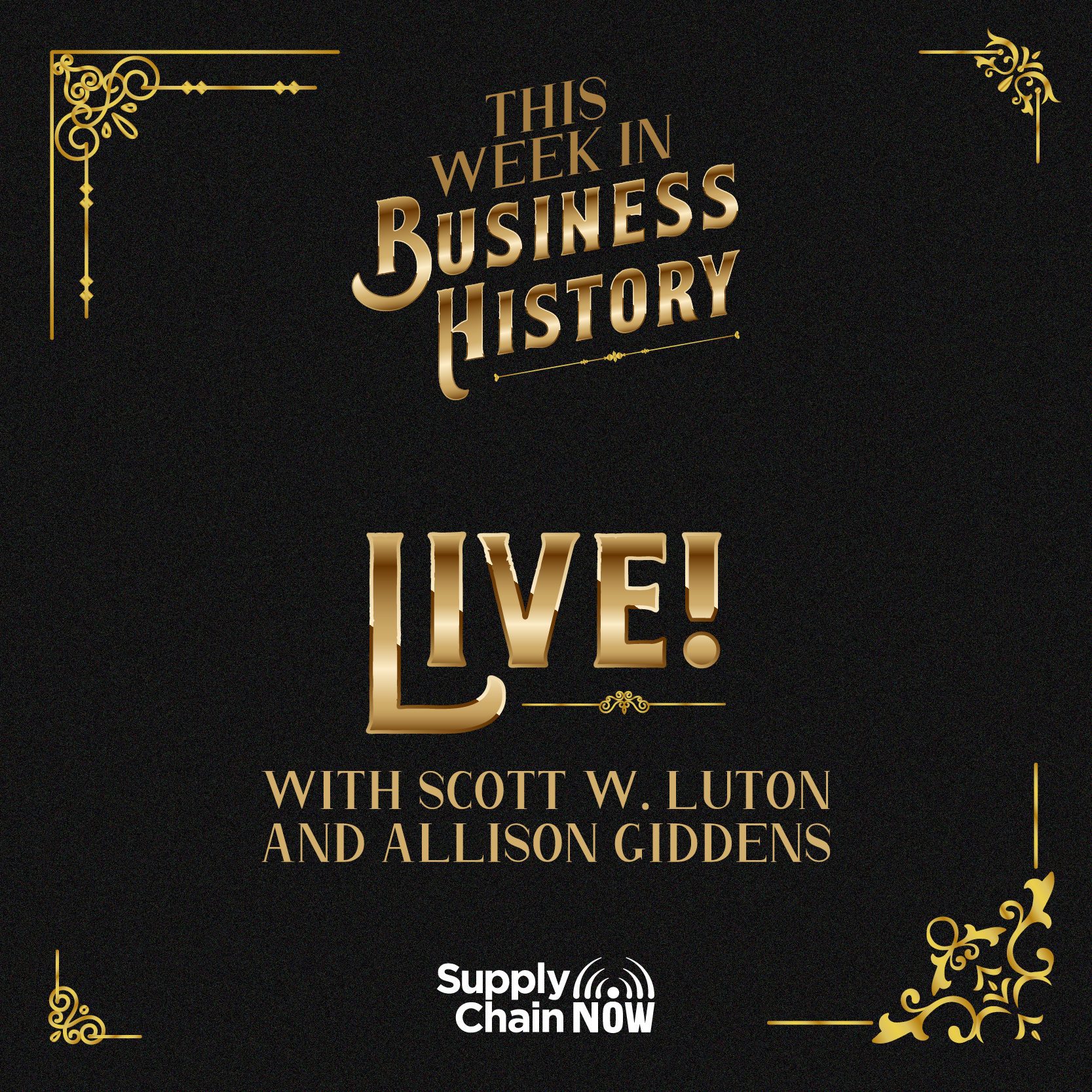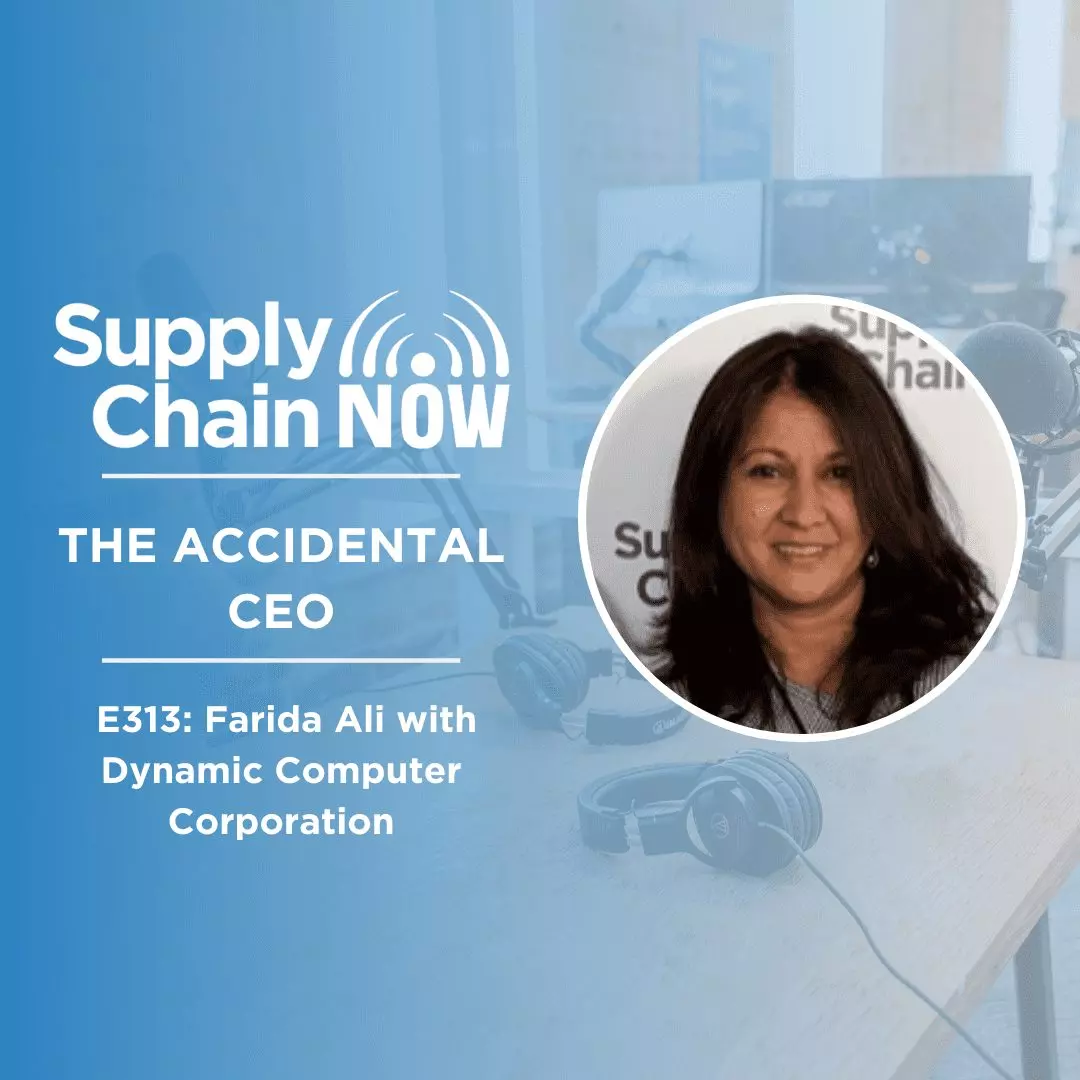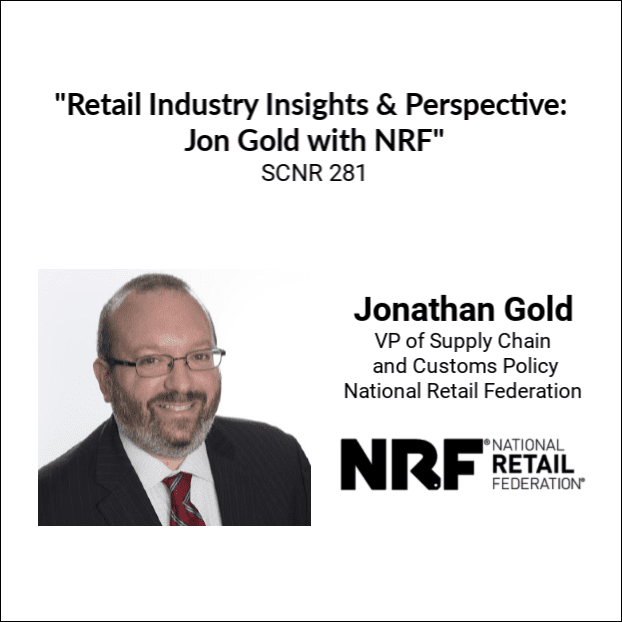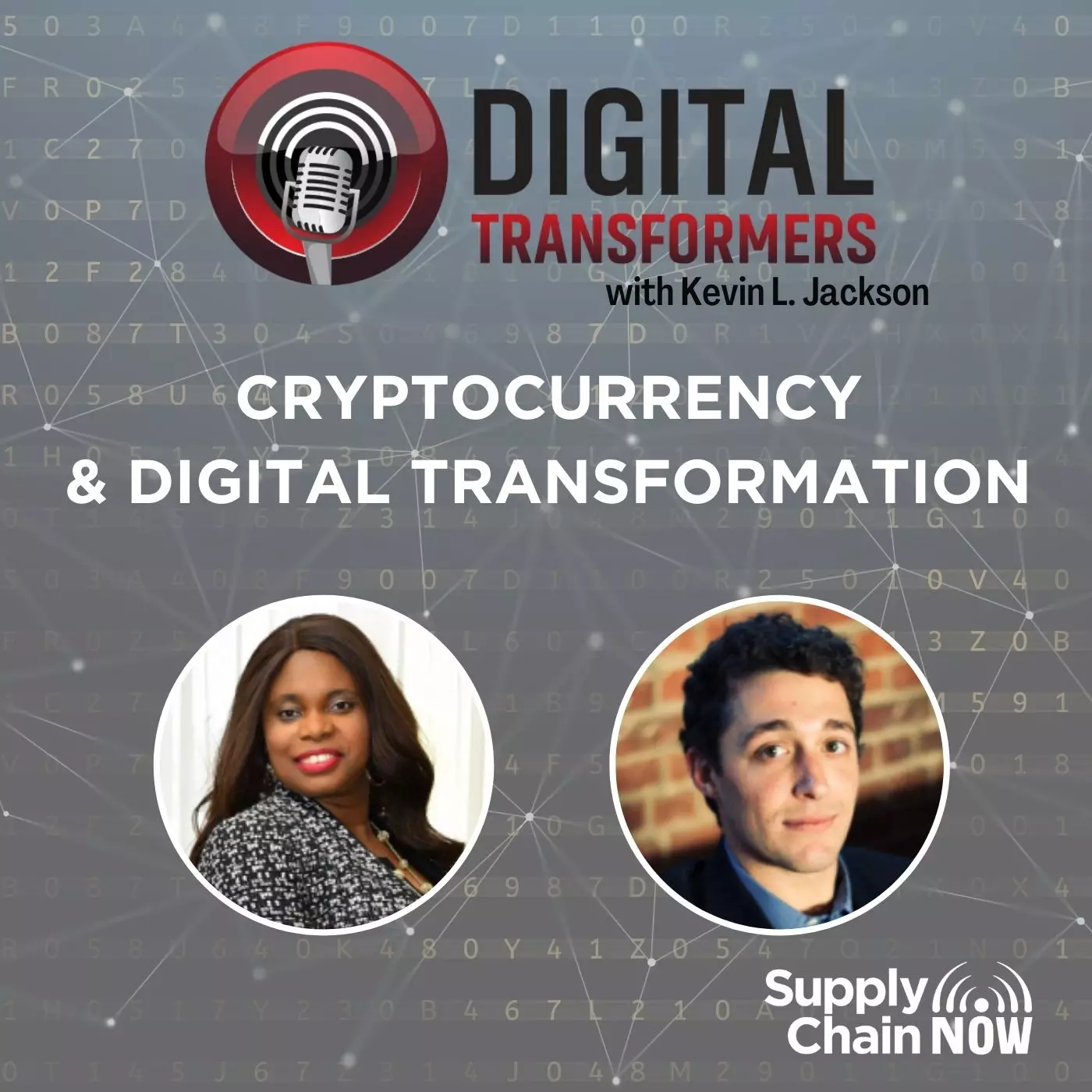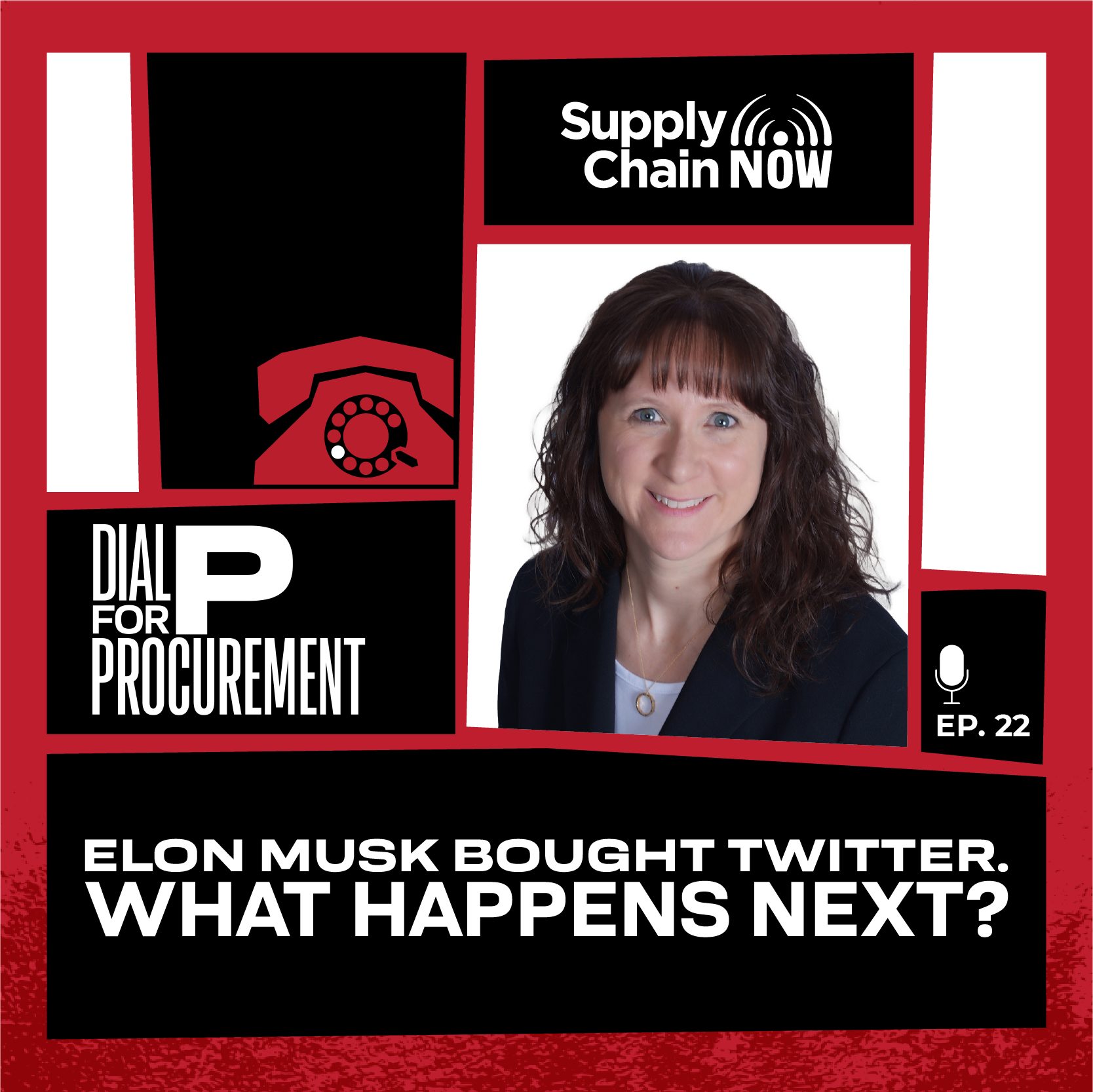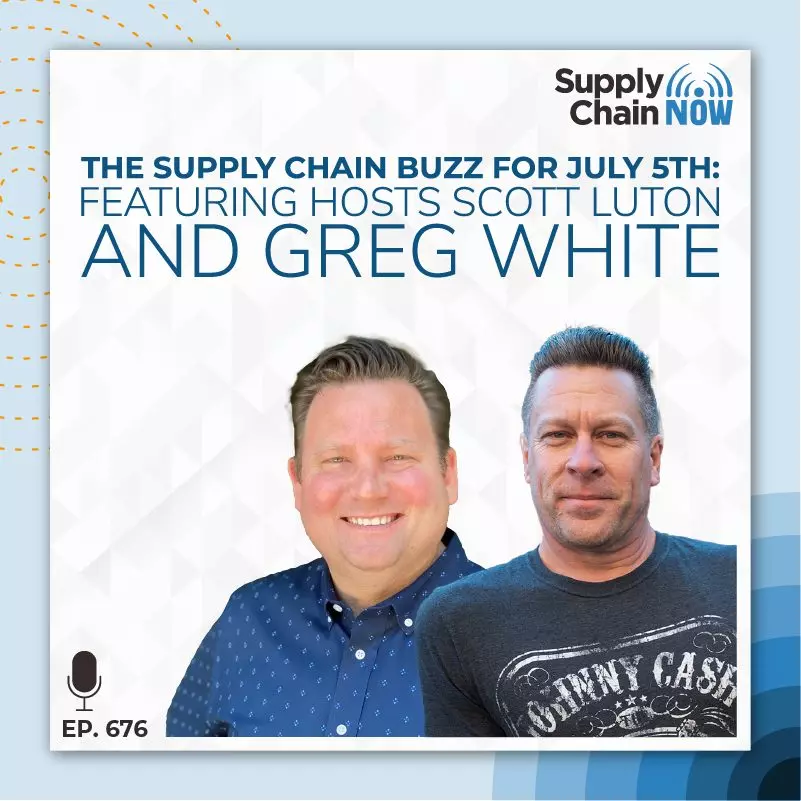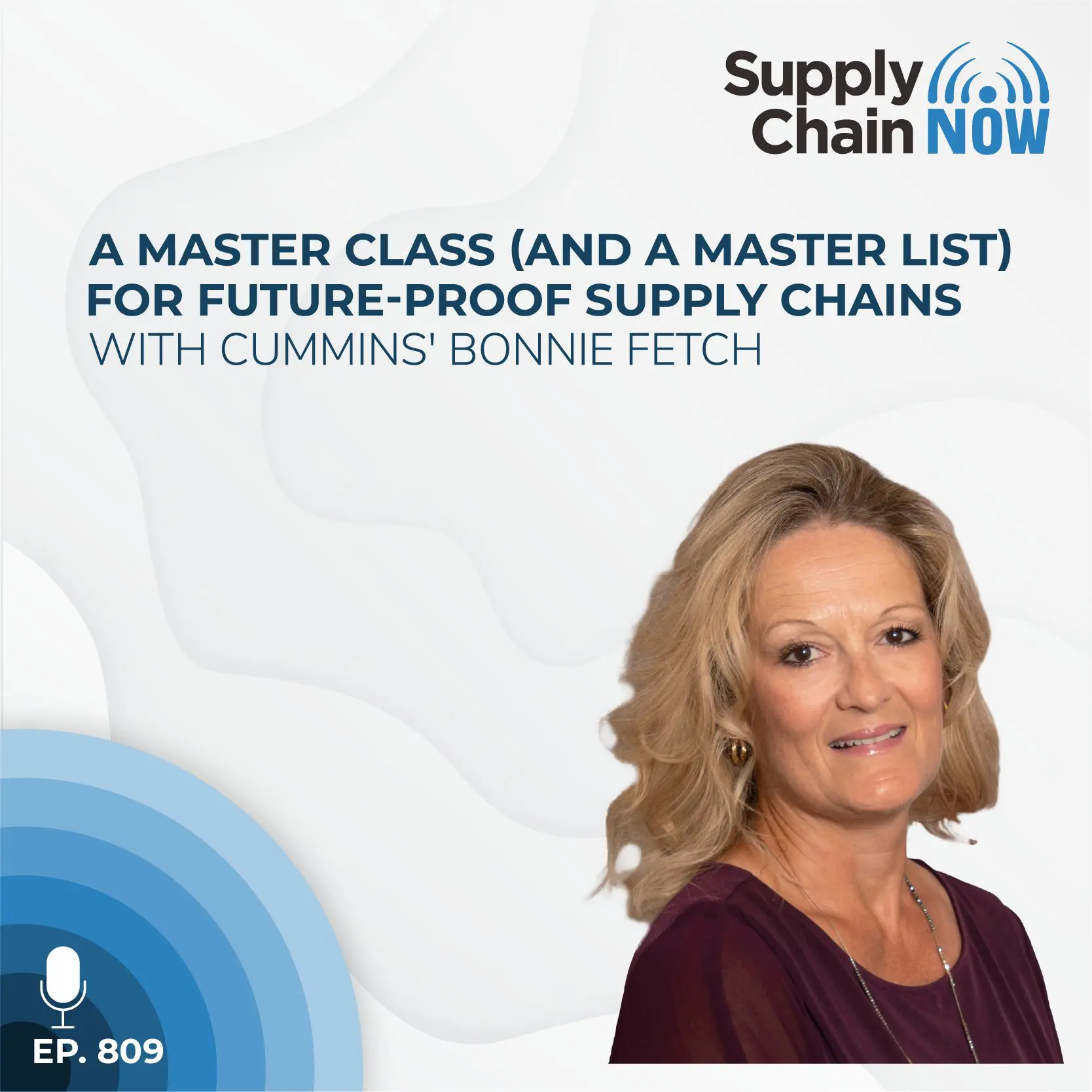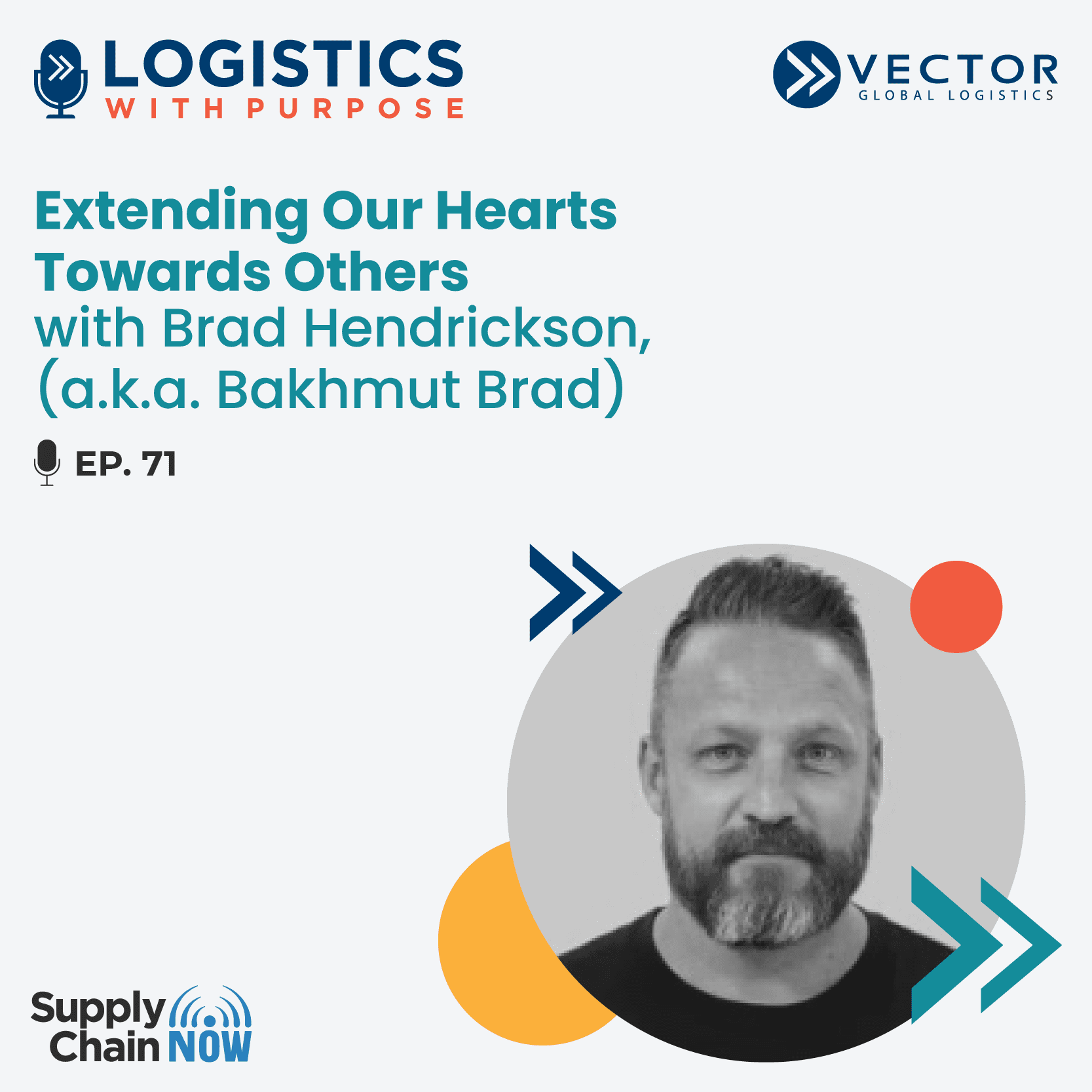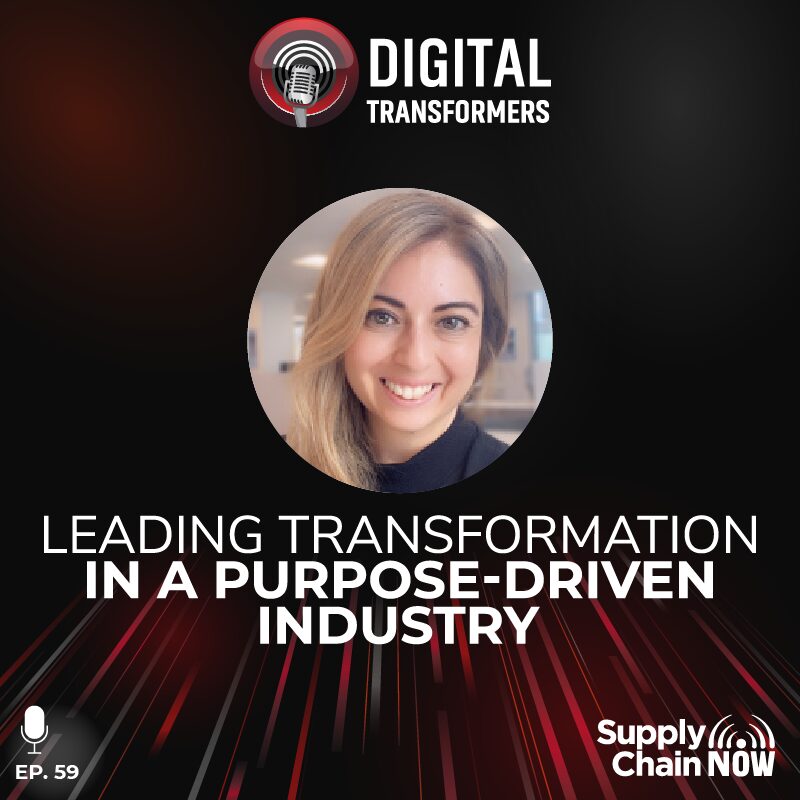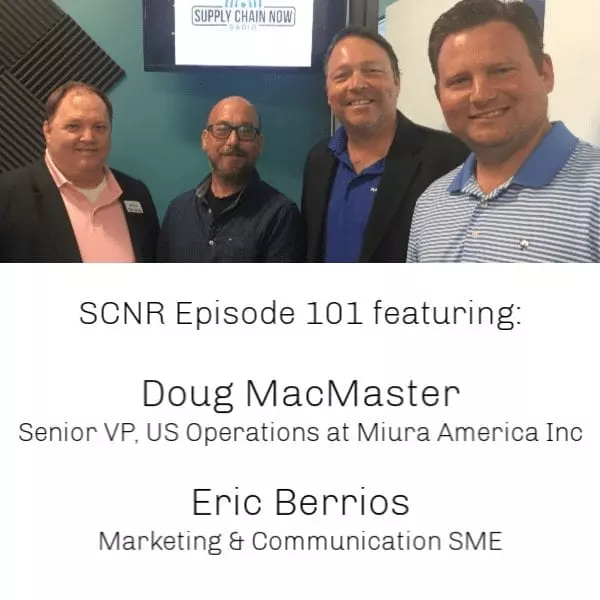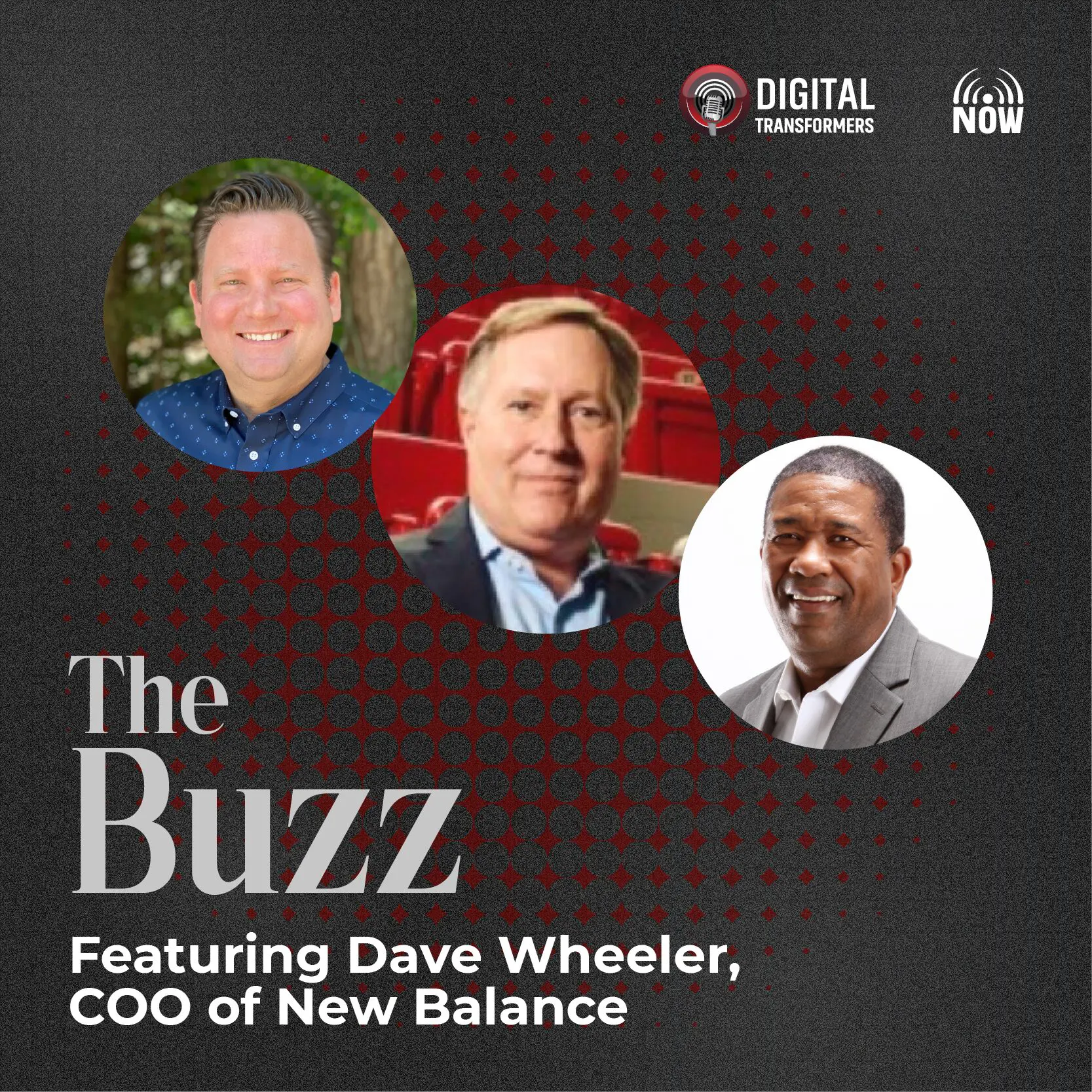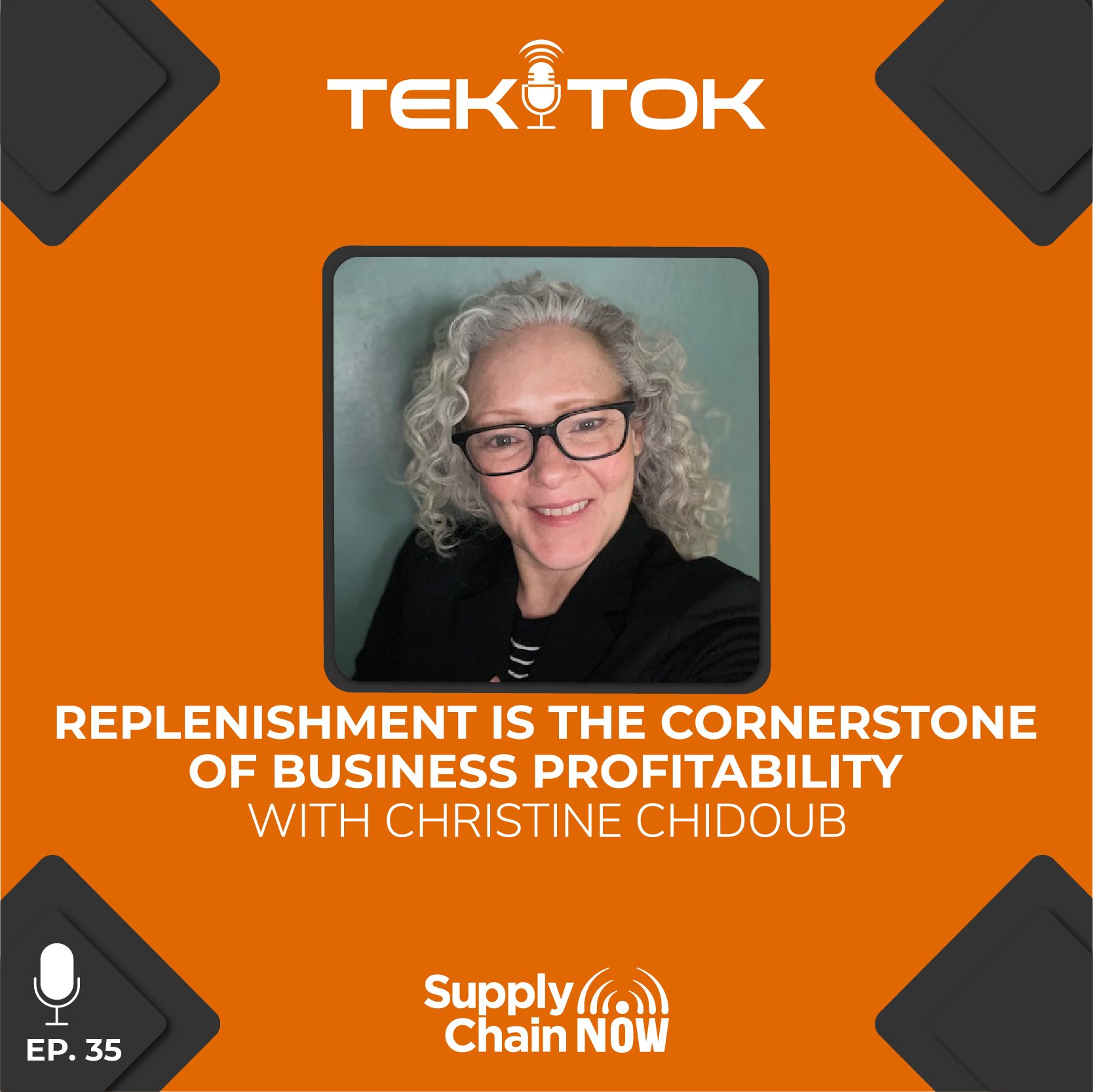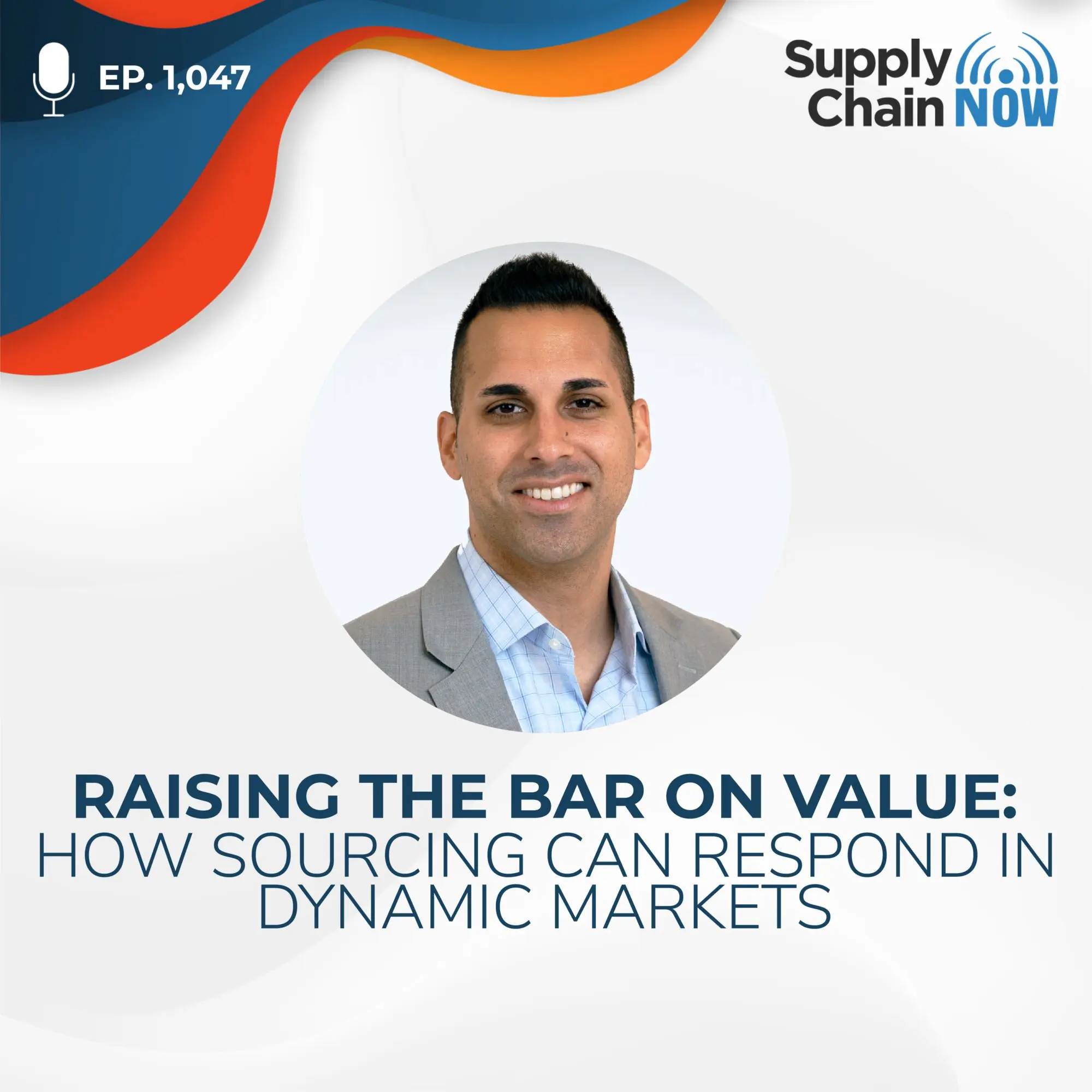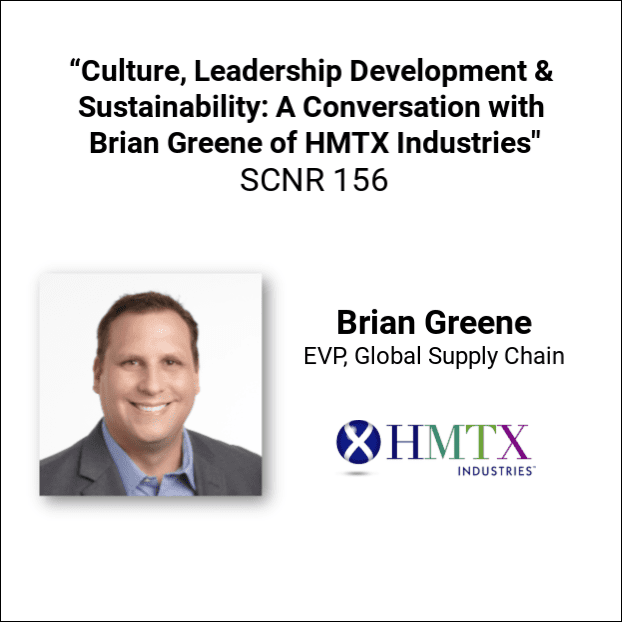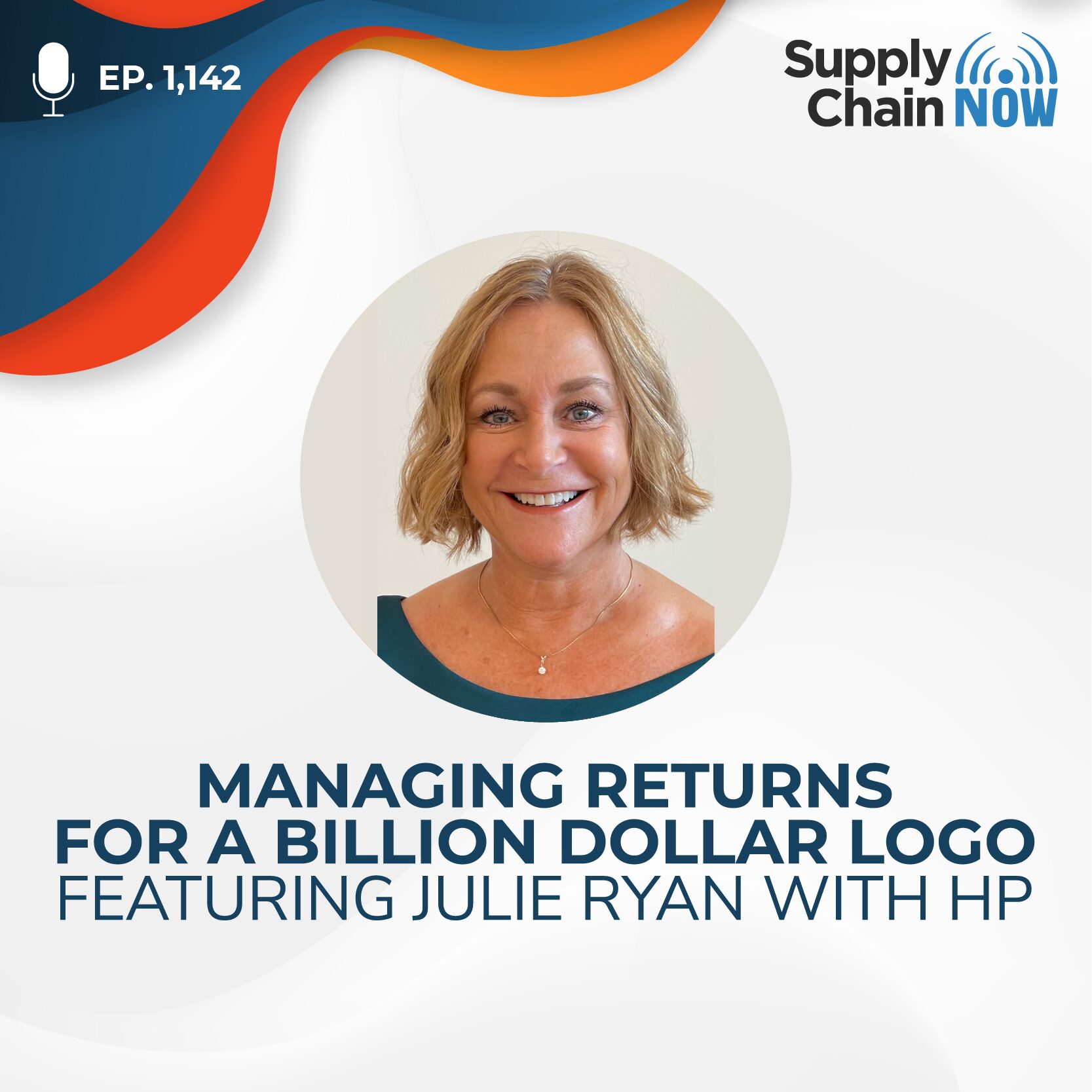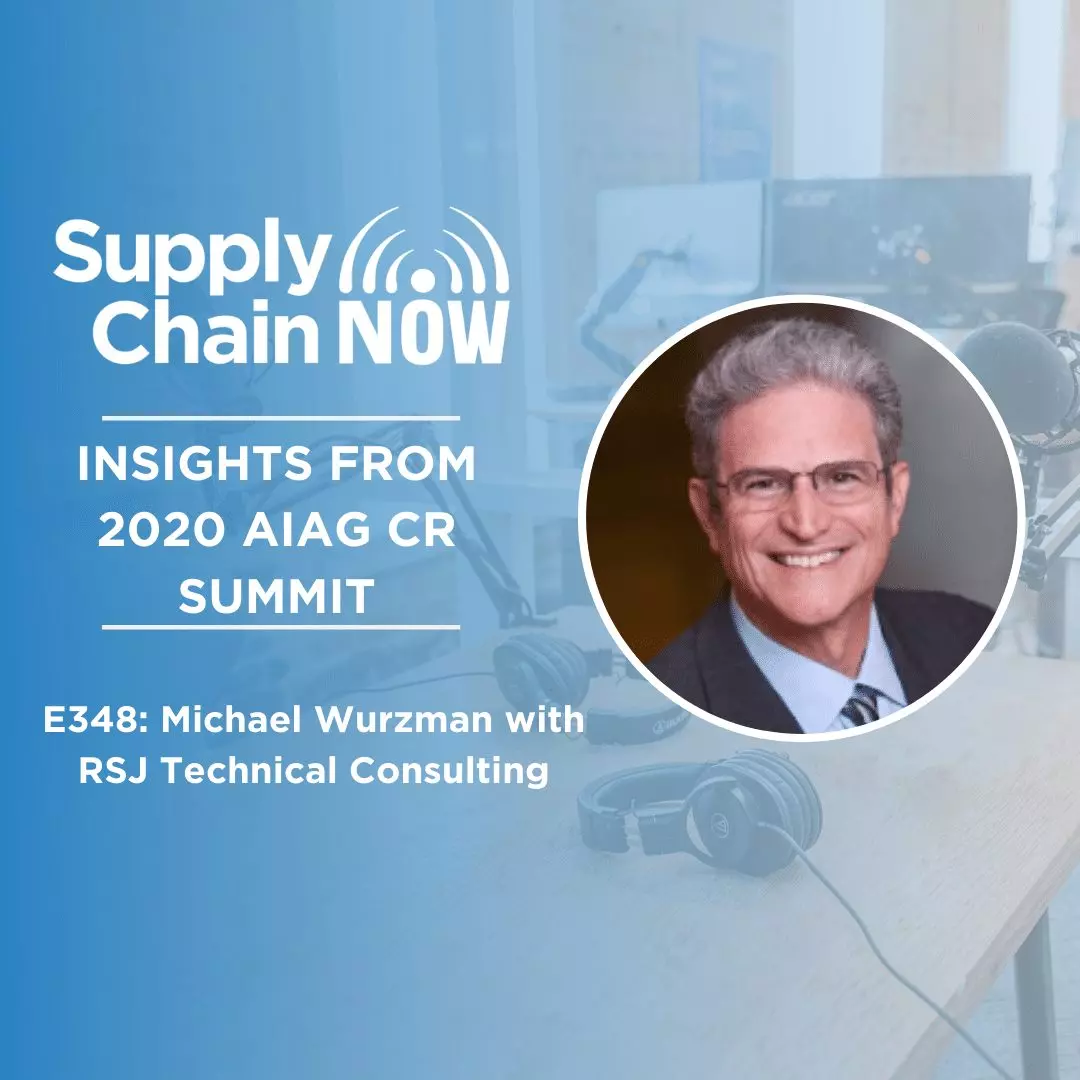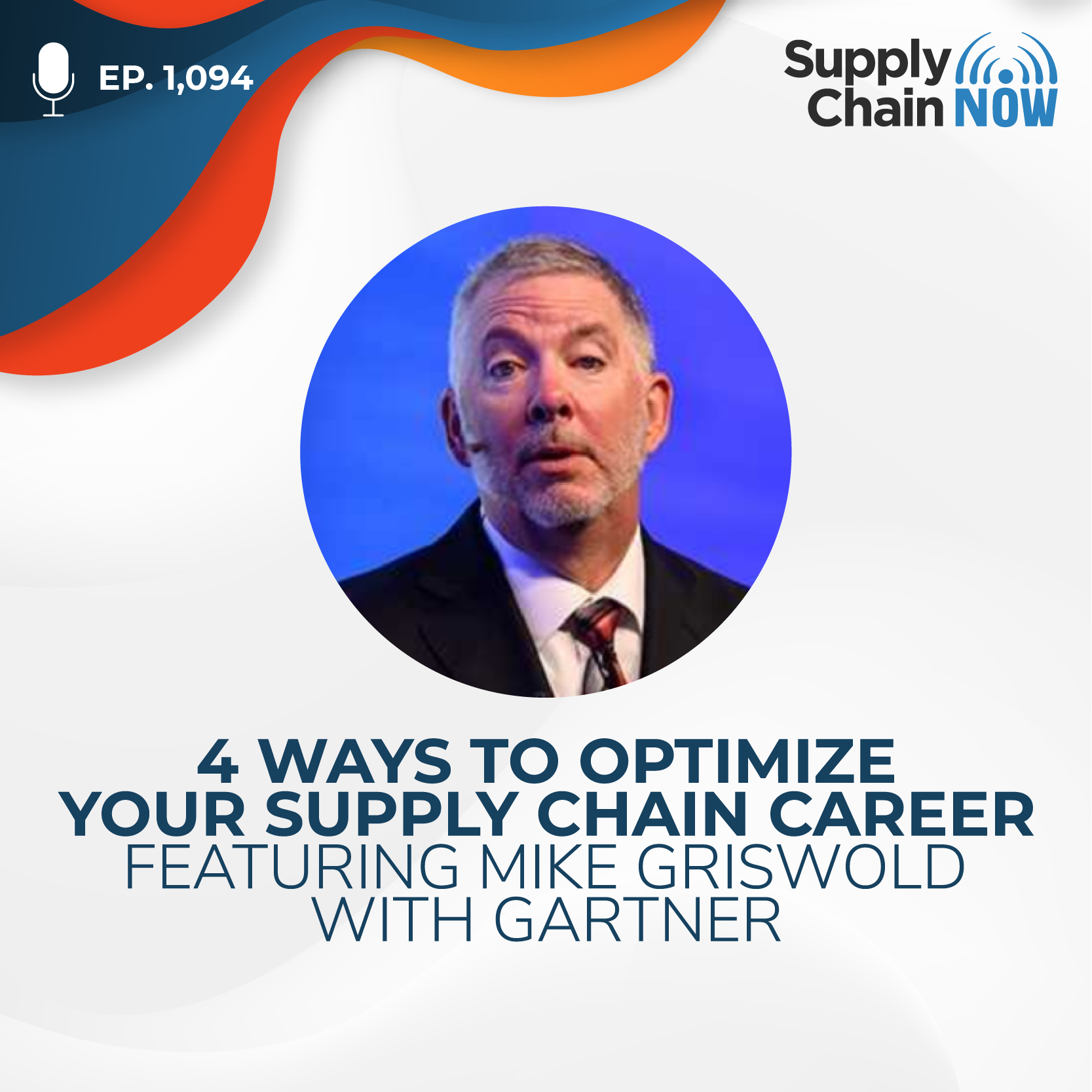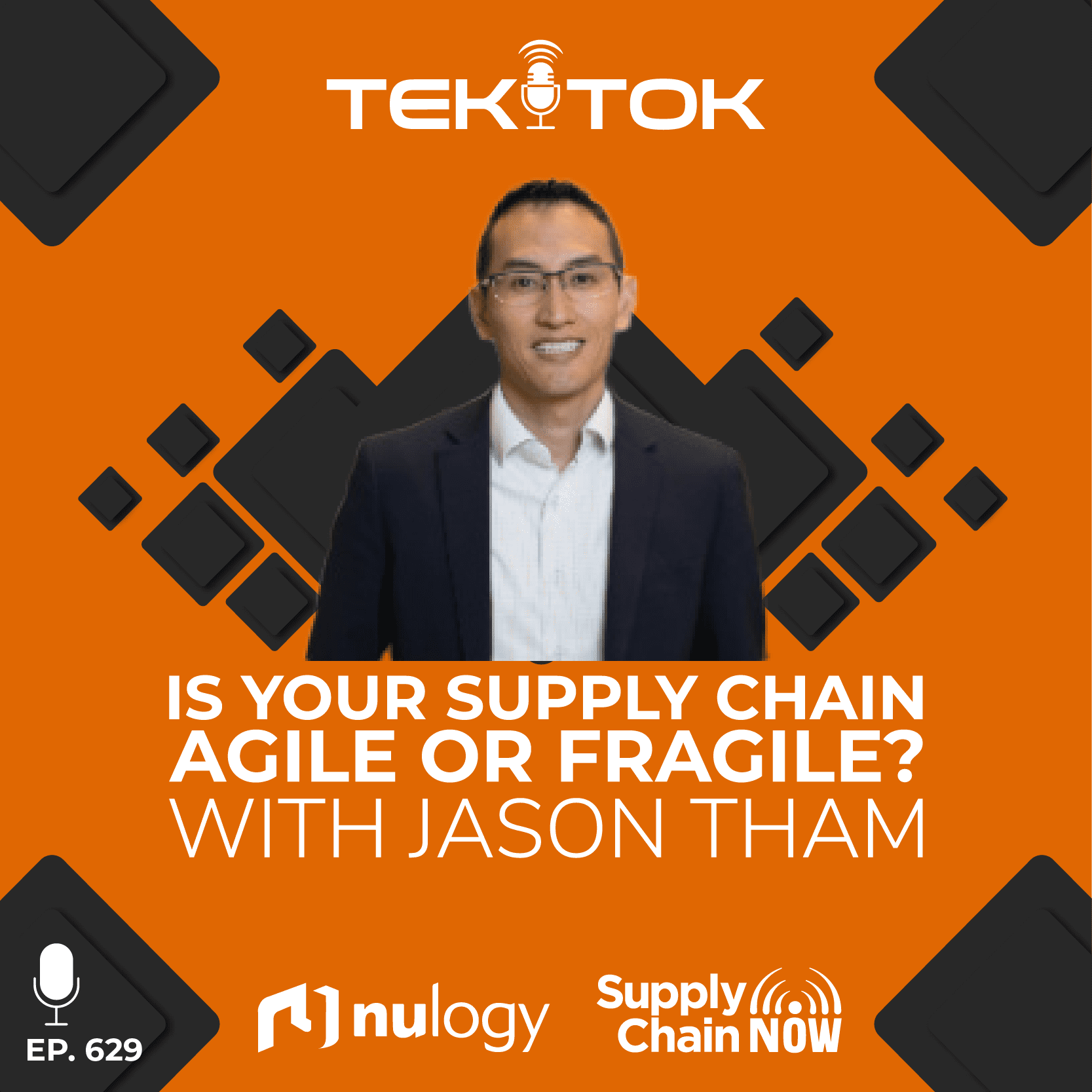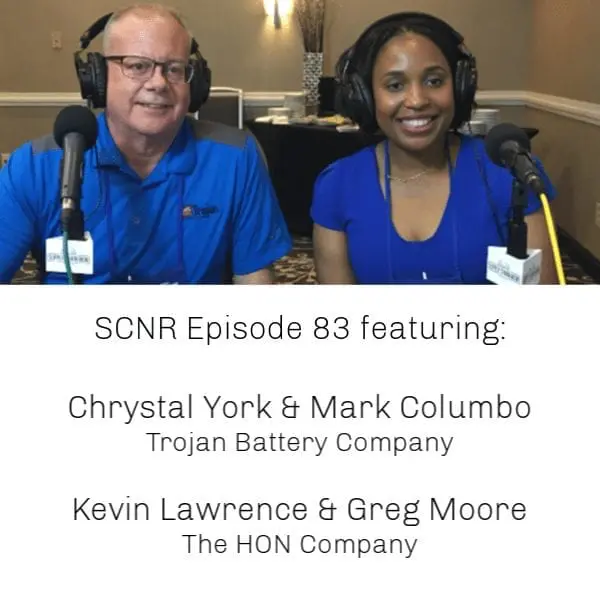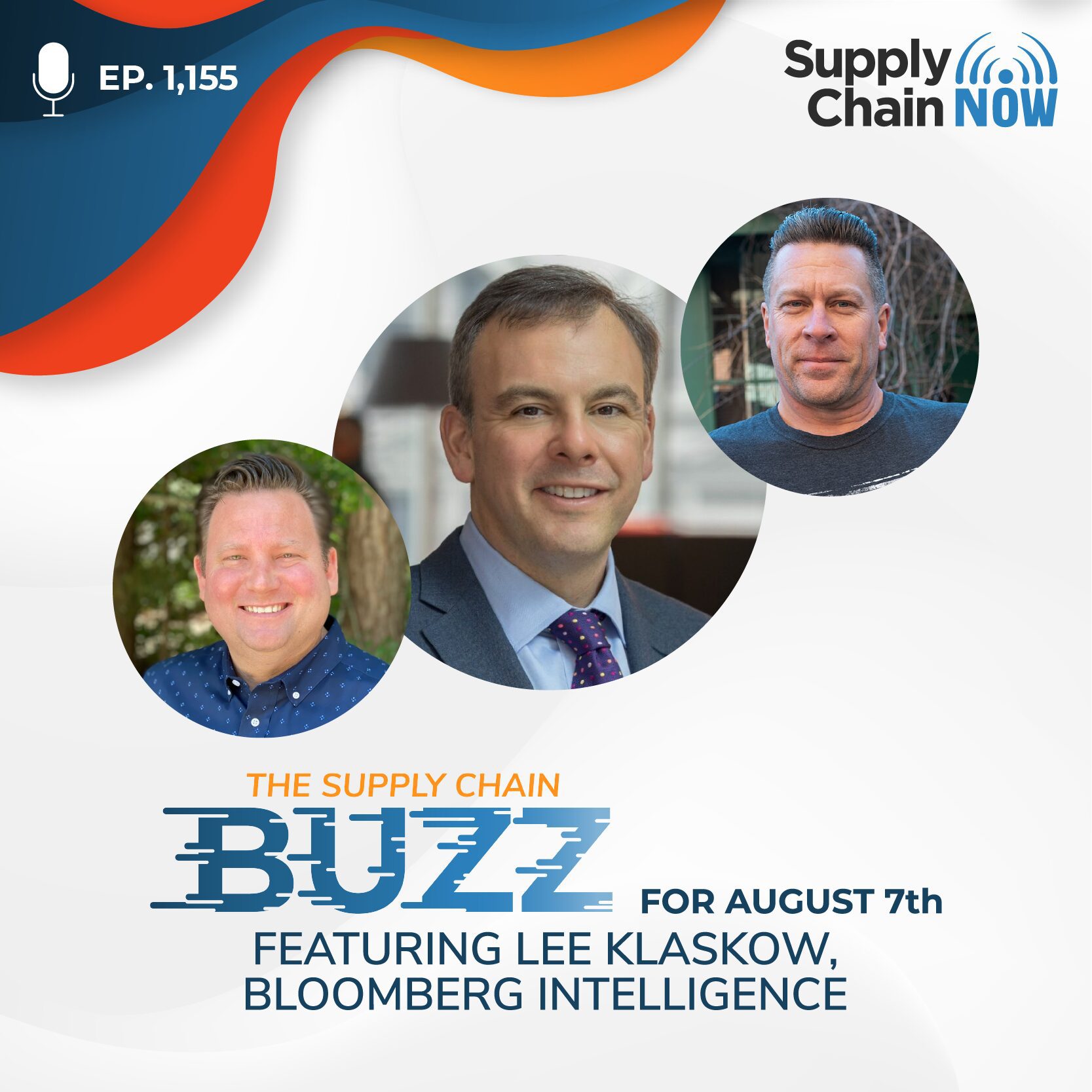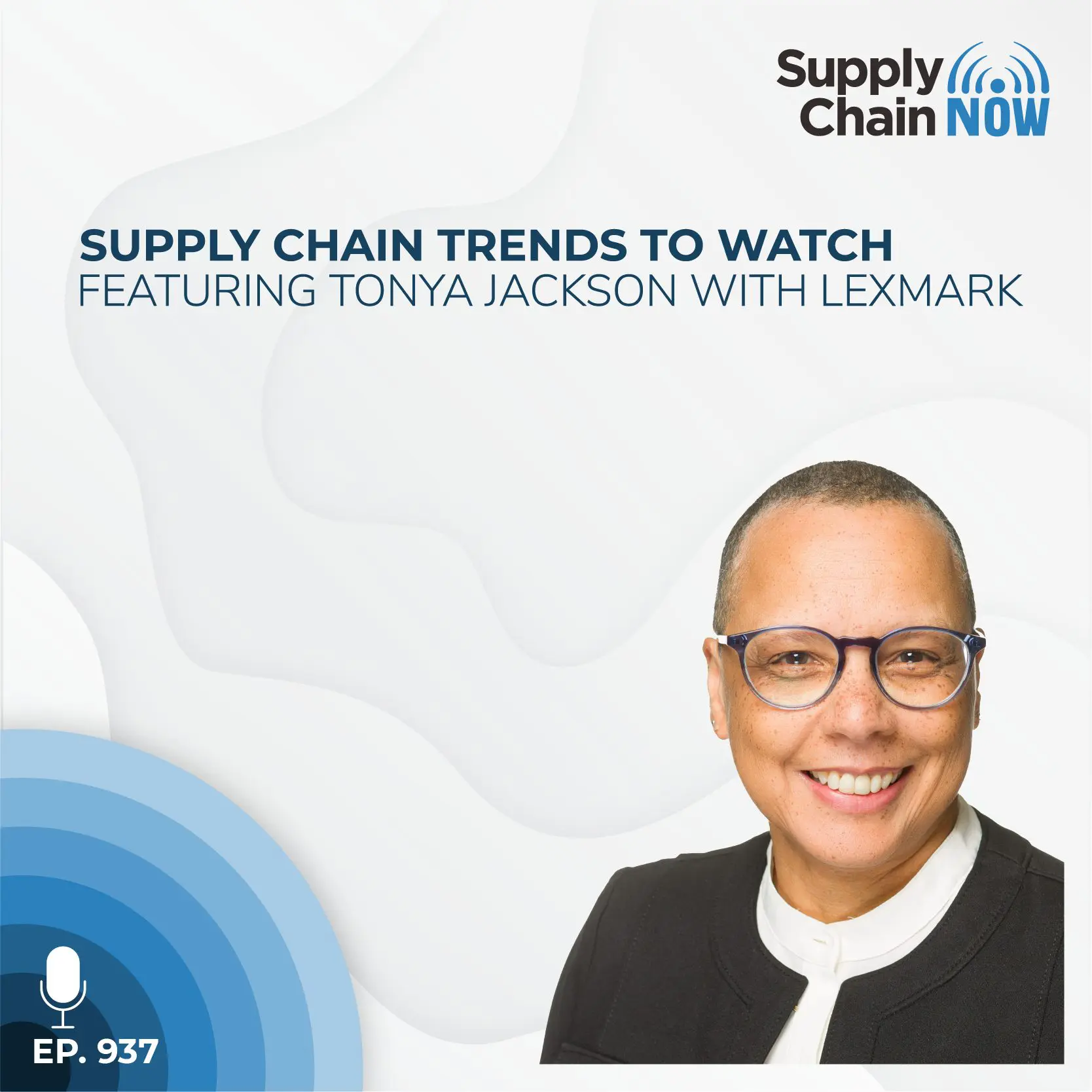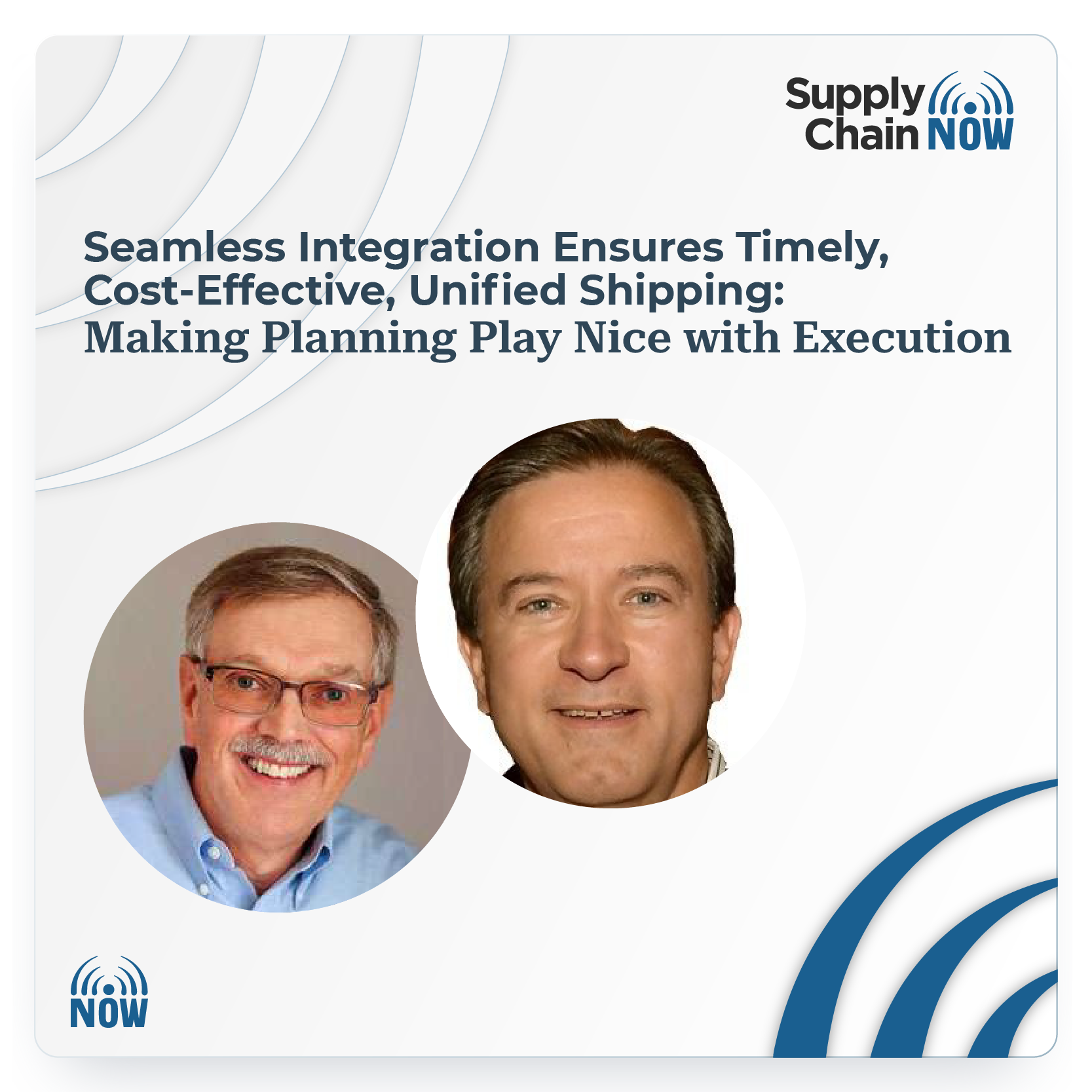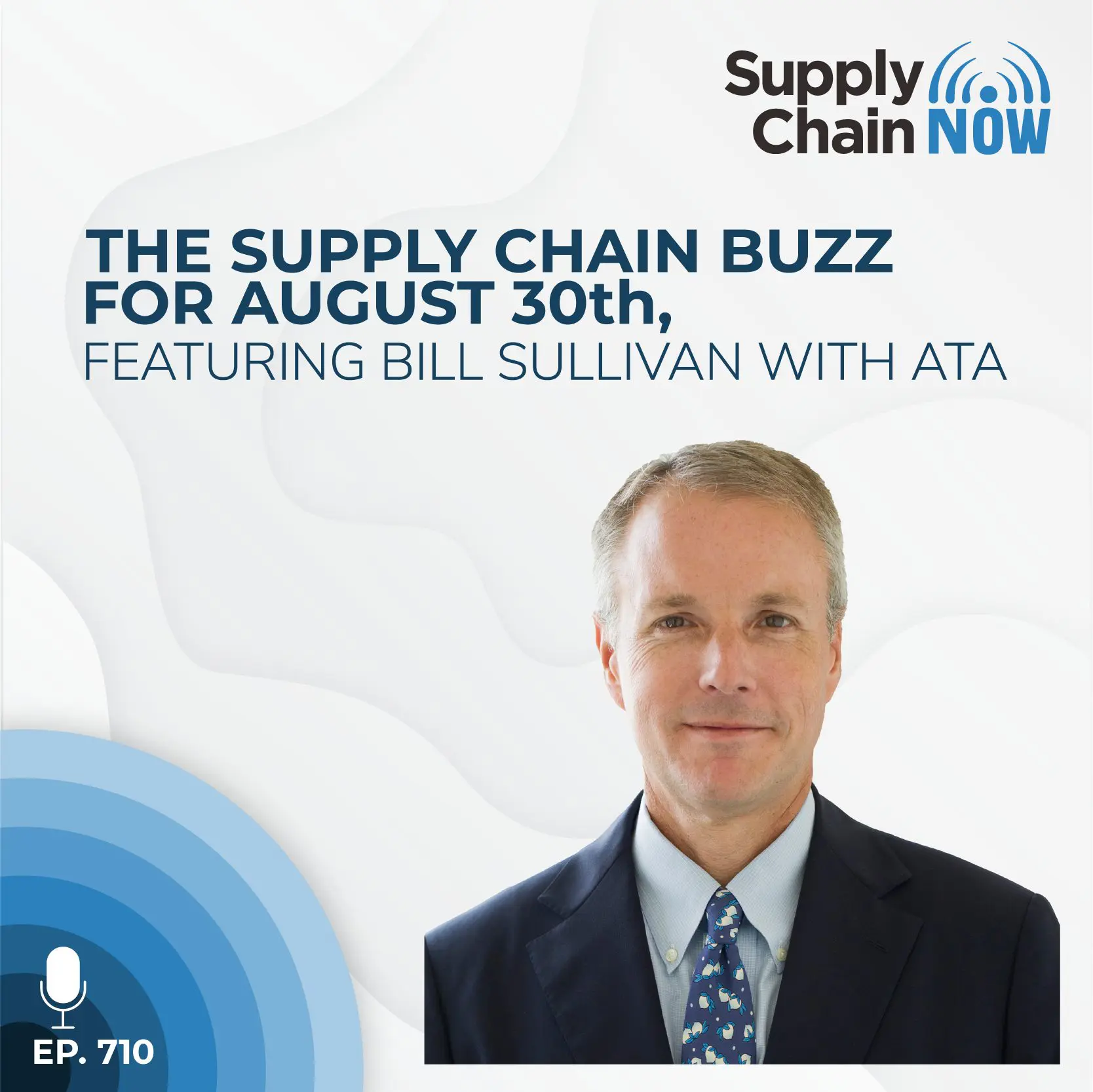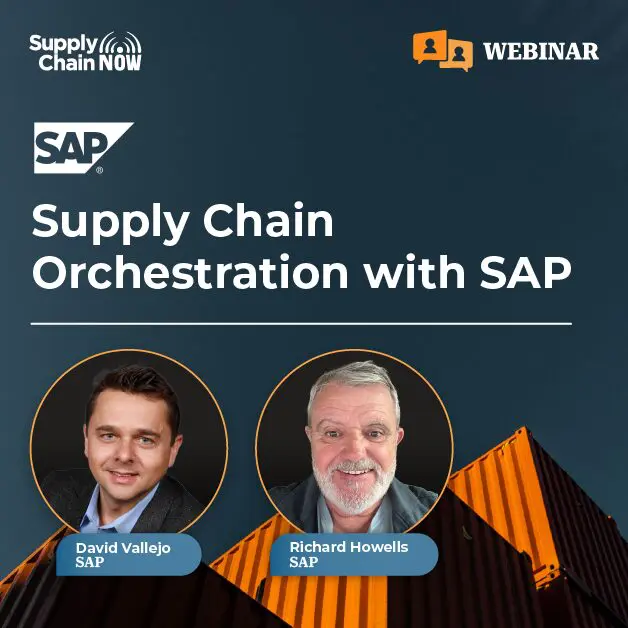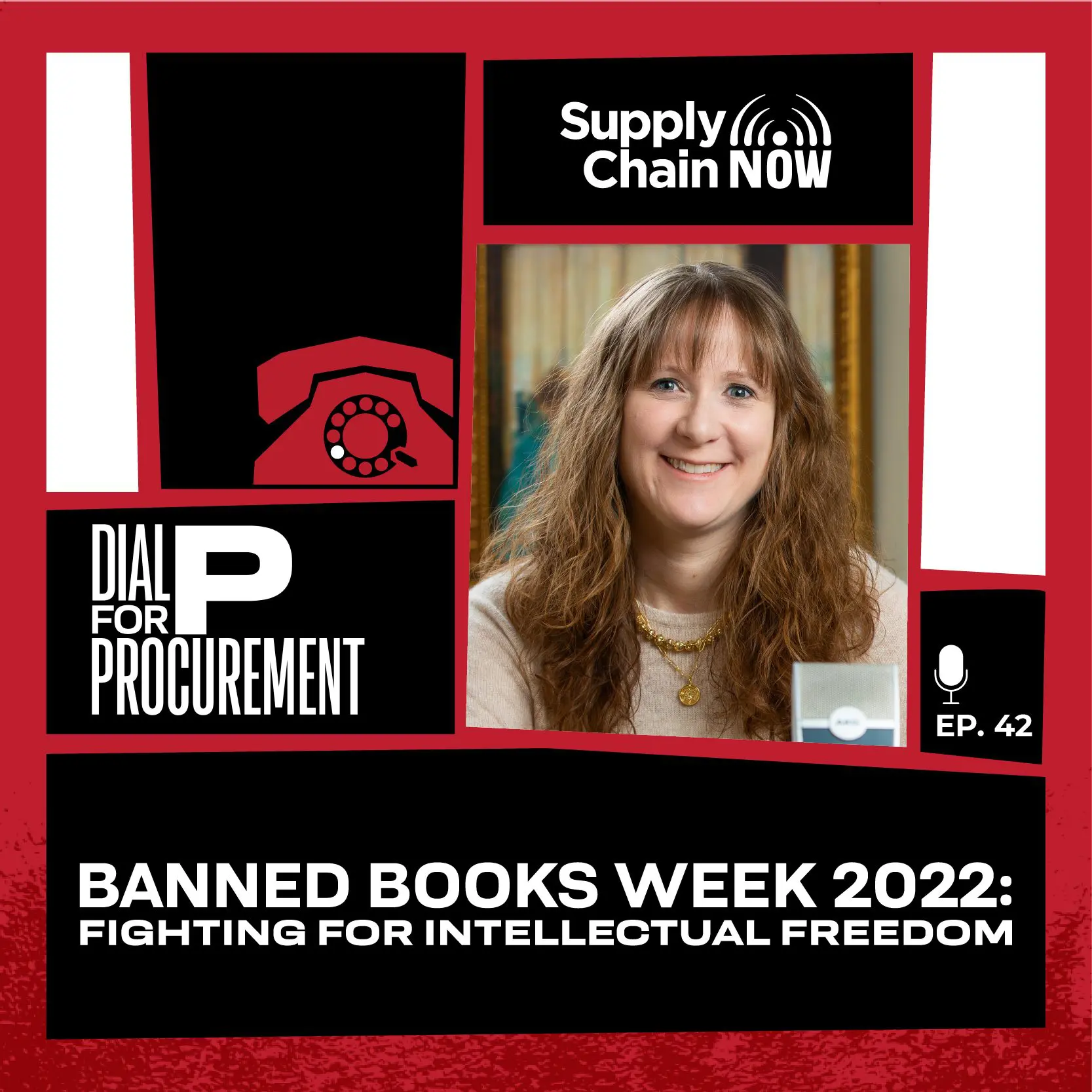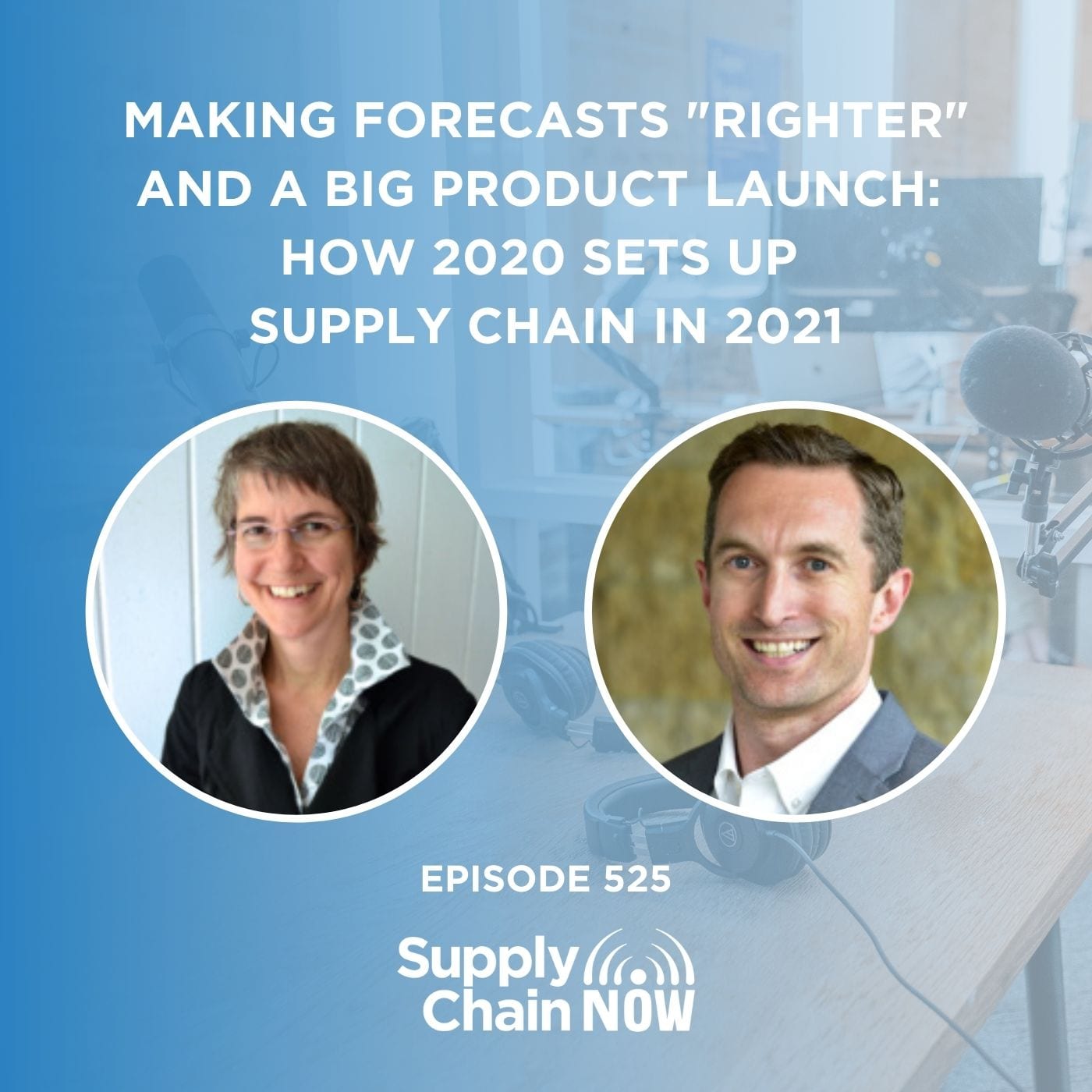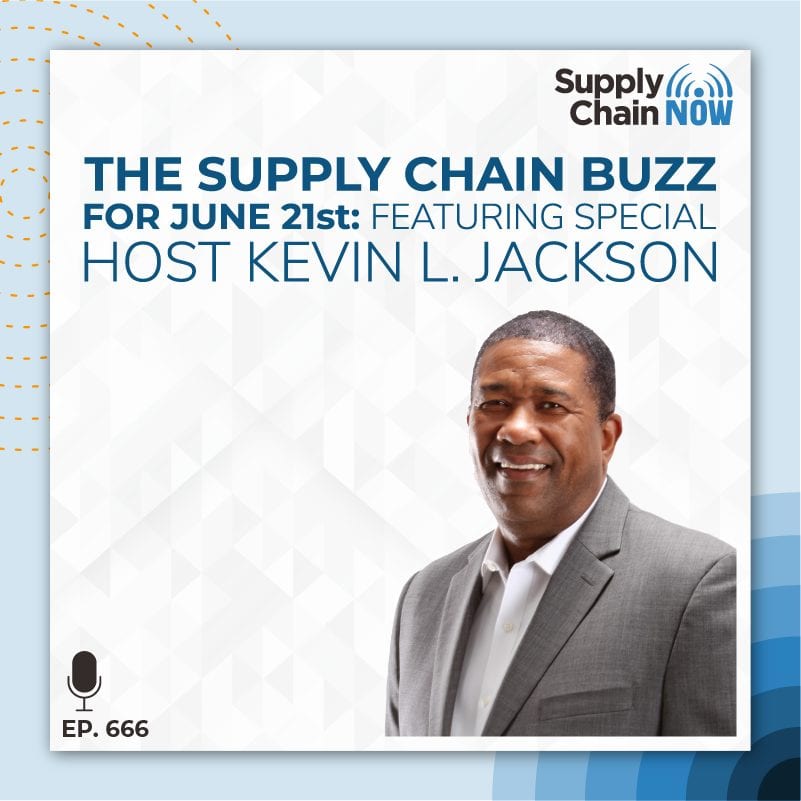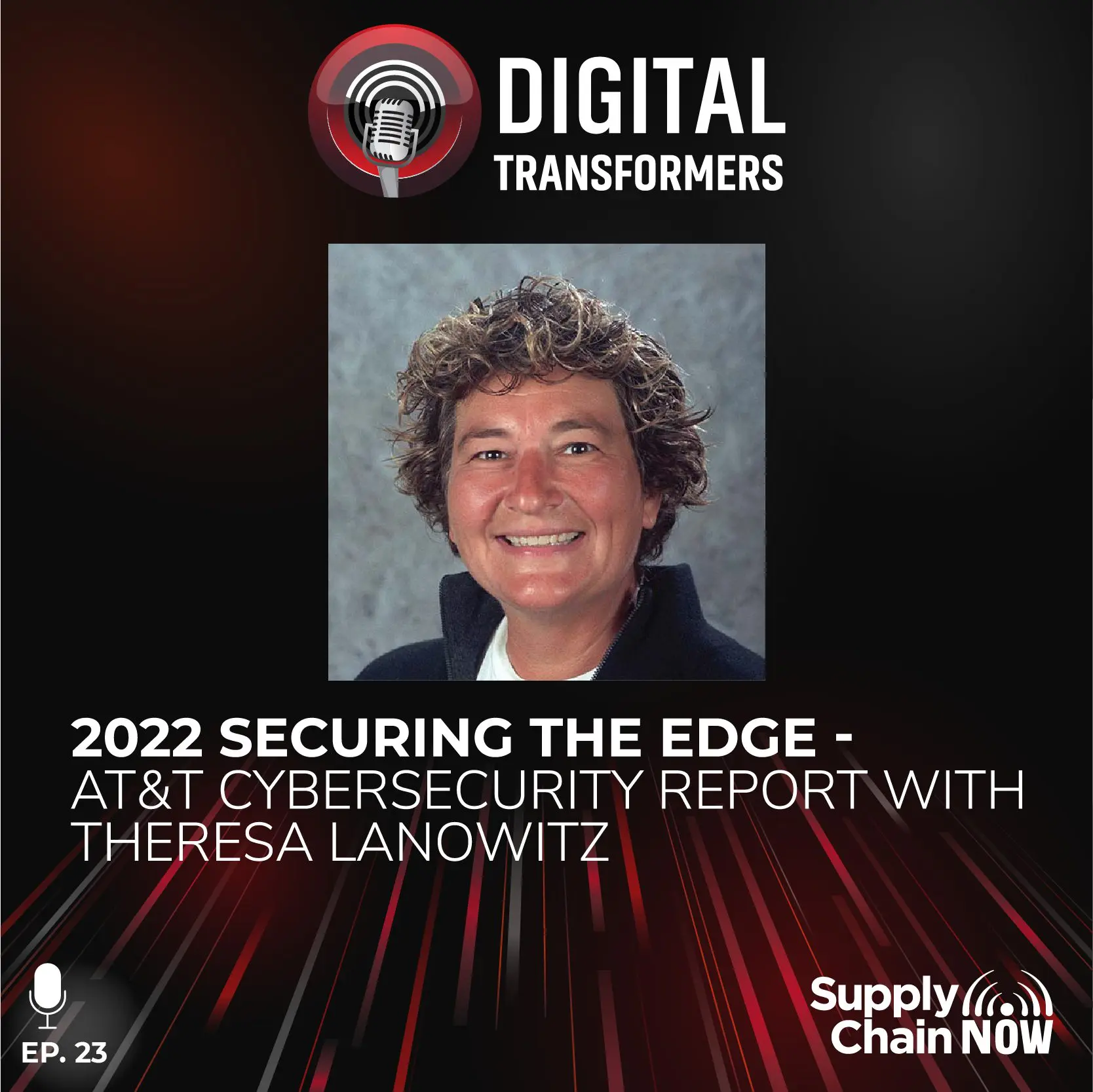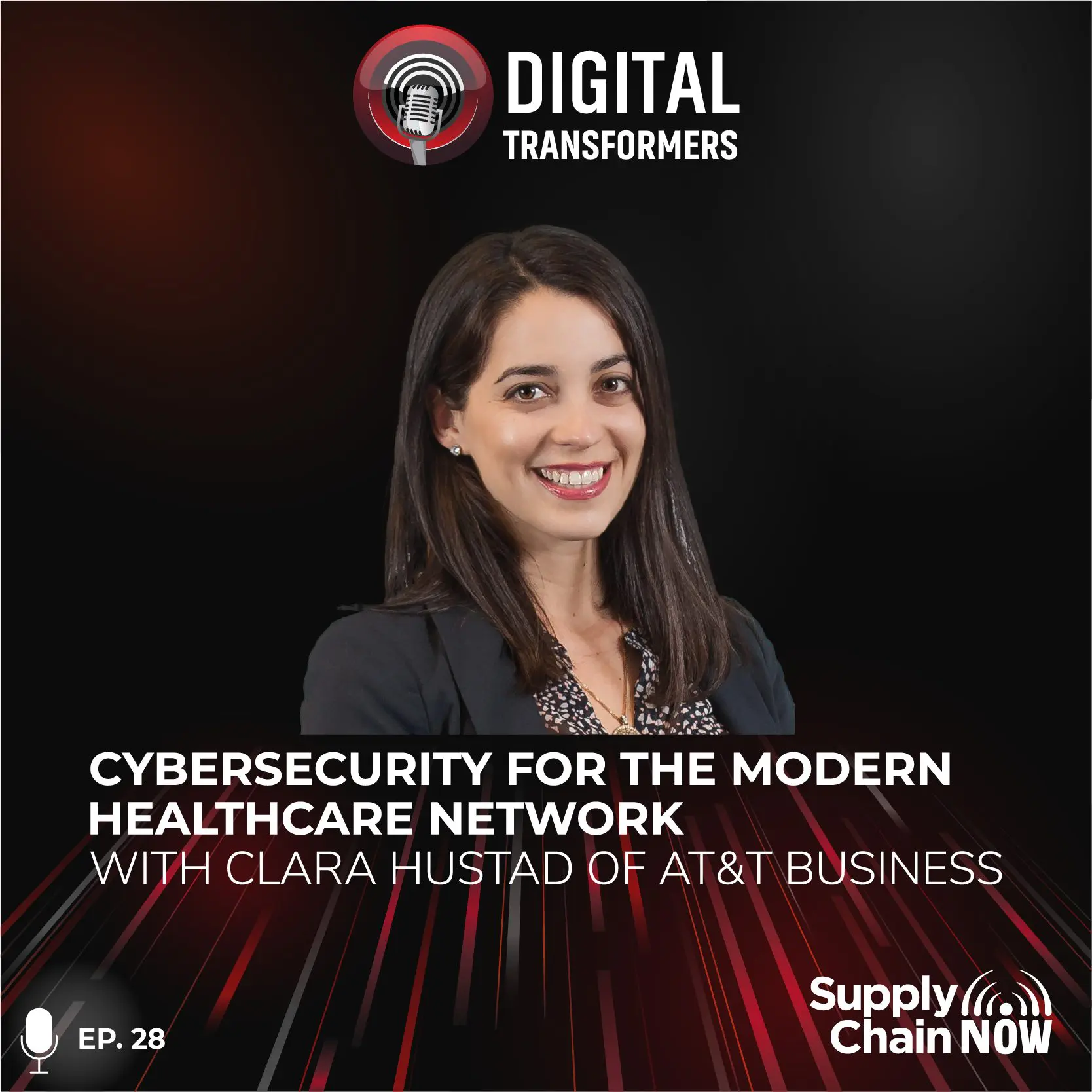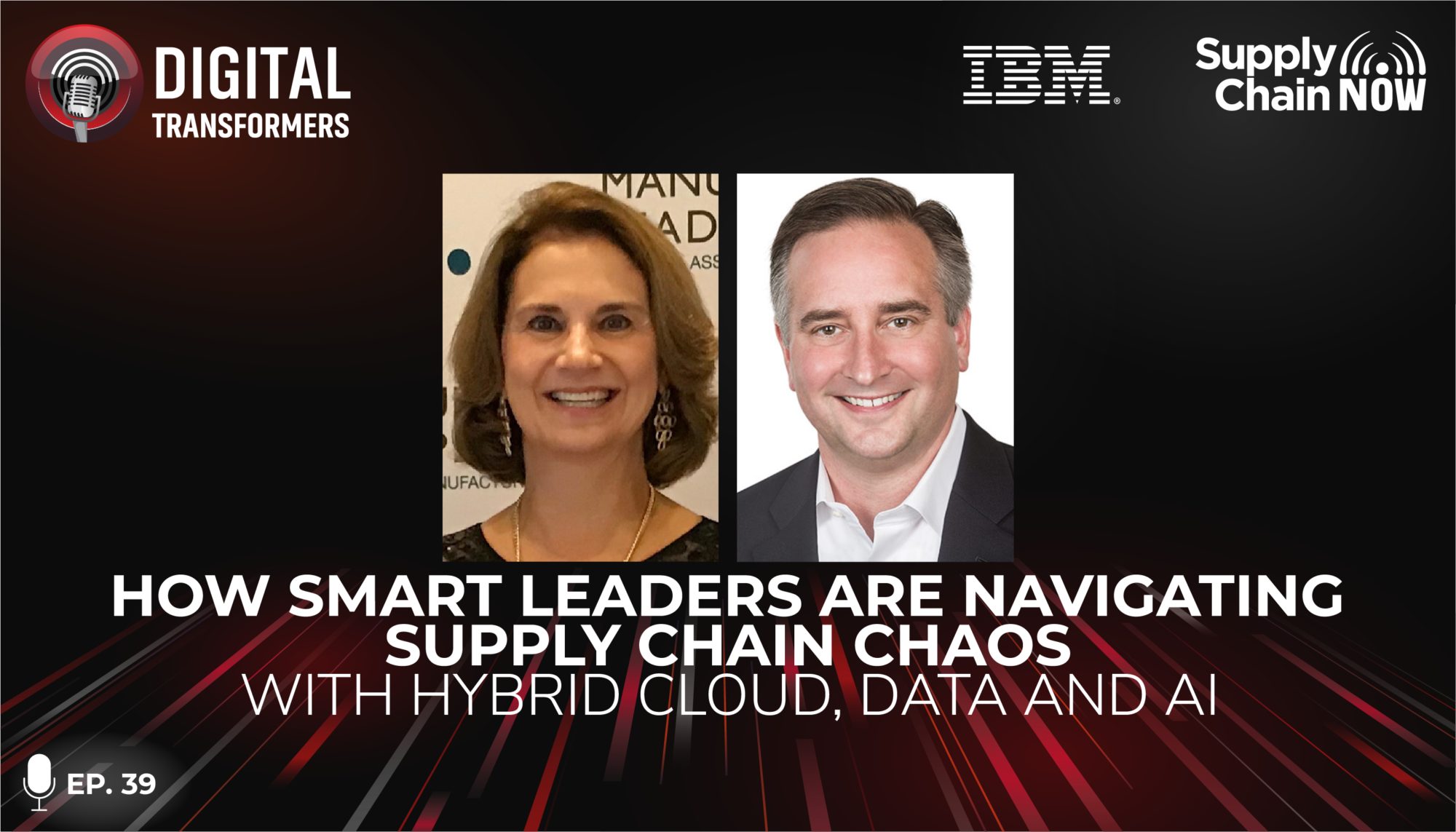
Data is incredibly powerful, but also it's the Achilles heel of just about every kind of transformation initiative.
-Rob Cushman
Episode Summary
It’s both an incredibly exciting and unclear time for supply chain transformation, but the right trifecta of technologies can help light the way to greater resilience and agility. In this episode, Kevin L. Jackson joins IBM’s Debbie Powell and Rob Cushman to discuss how hybrid cloud, data and artificial intelligence — when leveraged correctly — can create new levels of visibility and predictive insight for customers. Tune in to hear case studies, key considerations and the outlook moving forward for game-changing supply chain technology.
Episode Transcript
Intro/Outro (00:01):
Welcome to Digital Transformers, the show that connects you with what you need to build, manage, and operate your digital supply chain. Join your host in a timely discussion on new and future business models with industry leading executives. The show will reveal global customer expectations, real world deployment challenges, and the value of advanced business technologies like artificial intelligence, blockchain, and robotic process engineering. And now, we bring you Digital Transformers.
Kevin L. Jackson (00:33):
Hello. This is Kevin L. Jackson, and welcome to Digital Transformers on Supply Chain Now. Supply chains are emerging from two years of pandemic buffeting only to face a whole new wave of challenges, war, inflation, energy, and resource shortages. The urgency to transform and build more resilient and sustainable supply chains has never been higher. But budgets are tight, the outlook is uncertain, and running day to day business is full of surprises.
Kevin L. Jackson (01:12):
In this episode, I am joined by Rob Cushman, IBM Worldwide Leader Supply Chain Transformation, and Debbie Powell, Digital Transformation Leader, IBM Systems Supply Chain, to discuss how smart leaders are turning to a new trifecta of hybrid cloud data and artificial intelligence to navigate their way out of the chaos. Welcome to the show.
Debbie Powell (01:43):
Thank you, Kevin.
Rob Cushman (01:44):
Hi, Kevin. Thanks for having us on.
Kevin L. Jackson (01:46):
Oh, it is my pleasure. Thank you both. So, starting with Debbie, then Rob, please introduce yourself and the roles you play within IBM.
Debbie Powell (01:56):
Yes, I’ll do that. So, Kevin, I’m the Digital Transformation Lead in IBM System Supply Chain. And IBM Systems is our internal organization for the manufacturing and delivery of IBM hardware. So, we have our own supply chain. I’m an initiative lead for a lot of our AI and cloud projects, including end-to-end supply visibility, continuous intelligent planning. And it really has evolved over the past few years, and especially because we are an emerging technology company, so it’s exciting because we’re on the leading edge all the time.
Kevin L. Jackson (02:34):
Wow. Sounds like a big job. And, Rob.
Debbie Powell (02:38):
Fun job.
Rob Cushman (02:40):
Very exciting job. Kevin, my role is I lead everything in our IBM Consulting business related to supply chains. All the work that we do around strategy and consulting, and application technology, and data and analytics, and even business process outsourcing is all my remit. And I think what’s a little bit different about IBM – part of the reason that I joined the team – was that we actually have our own supply chain. So, unlike most of our competitors, we still have a big complicated global supply chain with really sophisticated products and technologies. And we treat that, I treat Debbie, as my Client Zero, we call it. So, we use that as a vehicle to drive innovation into our own business and, ultimately, better performance for our customers. And in doing that, that becomes our test pad to try out kind of all of our ideas and innovations on ourselves before we take them to clients so that we bake in all those, you know, learnings and experience into kind of how we show up to serve our clients in a different way.
Kevin L. Jackson (03:51):
Yeah. I think that’s known as drinking your own champagne, right?
Debbie Powell (03:56):
Champagne, that’s right. And we do have very strong relationship. And Rob and Rob’s team, they give us concepts and ideas. We’ve got continuous intelligent planning. We knew we wanted to do something really integrating planning and fulfillment, and they were working on – what we call – CAP, and we adopted it. Our executives were totally bought in. And that’s one of our high priority initiatives. The other thing is we’re a showcase, so we’ve got, in our end, end visibility. What we’ve created the last few years is a very strong cognitive Advisor, or some people call it Control Tower. So, I get the opportunity to share that with Rob’s clients, to show them the art of the possible. So, it’s a very strong partnership and we’re thought leaders together.
Kevin L. Jackson (04:40):
Wow. That’s really good. I think visibility is one of the most important aspects of any business process, especially supply chain, which is connected with so many other things in an organization. So, Rob, how did you find yourself leading such an impressive global team? Have you always been focused on supply chain?
Rob Cushman (05:03):
You know, I have. I’ve spent my whole career working at the intersection of supply chain and technology oriented industries. I sort of fell into that early on, mostly because what I love about supply chain is it’s a very kind of hands on, learn by doing kind of profession. And so, that worked really well for me. And the opportunity to do things like, you know, work everywhere from the executive suite all the way down to the shop floor in the factory or distribution center has always been something I’ve really enjoyed. And so, I’ve done that both as a consultant. And then, I had actually a stretch in my career where it sort of bothered me that my clients would say things like, “You know, Rob, you’ve got great ideas and seem fairly smart, but you’ve never really run the business and owned the P&L.” And so, I actually left consulting for a few years to run a pre-IPO company and take it to a liquidity event, and then came back to consulting.
Rob Cushman (06:03):
And here at IBM, I probably always in my career wanted to work for IBM because it really is the sort of an iconic brand. And, frankly, as a technology oriented supply chain professional, IBM has this richness of all of its history kind of in the semiconductor industry, and the PC industry, and the servers ,and all kinds of, I think, technology innovation. And so, my mission kind of here is to kind of bring all of that DNA to show up and serve our clients in a consulting capacity in a new and different way. And that’s where you hear Debbie described, like, not only are we working together to drive new innovations into our own supply chain business, but then we also show up kind of in the cycle of helping our clients envision, and solution, and deliver their future. We actually, you know, cross pollinate our teams in all of those capacities.
Kevin L. Jackson (06:59):
Well, you know, everybody knows IBM as a technology company, but it’s really over the years has been a business innovation organization. They’ve revamped themselves so many different ways and I think it sort of reflected in your broad background.
Rob Cushman (07:18):
Yeah. Well, I think, one of the things that’s fascinated to me, like, IBM is the company that invented the barcode, kind of put people on the moon. I think, like, five Nobel Prize winners. So, there’s something really special here that we’re probably trying to get back to a bit. As we invent, we invent ourselves as a consulting and hybrid cloud and AI company. But bring to bear all that kind of richness of history in how we serve our clients.
Kevin L. Jackson (07:47):
Right. And, Debbie, what were the highlights of your journey to IBM?
Debbie Powell (07:53):
I had worked for a metal working manufacturer prior to joining IBM, and I was given the opportunity to join IBM. So, I’ve been in supply chain the whole time, but I’ve had different roles, so some operations, some IT, some transformation. But I really like the transformation. I really like it here at IBM, because we’re a technology company, we’re expected to be on the leading edge. So, we’ve got a lot more opportunities and a lot more advantages because we’re a technology company. The technology is there. Whether it’s cloud, big data, speed, it’s there. It’s really the operation side, the process reengineering, the change management. And that’s what is exciting to me as well, marrying those two. And that’s what, of course, Rob does in IBM Consulting is he does a lot of that, all of that for his clients.
Kevin L. Jackson (08:48):
Yeah. That’s a very interesting path. You know, I personally also followed an unexpected route to IBM. I was with IBM for about six years. I was outsourced from Chase Manhattan Bank. I had a technology project, global project VP position. And Chase just outsourced all of their technology to IBM. It was, however, a great professional outcome for me personally, and it really set my path to cloud computing. I mean, the audience knows that I’ve been doing cloud computing for such a a long time. And speaking of cloud, Debbie, I understand that IBM sees cloud as a very important tool for supply chain transformation. Can you explain that viewpoint?
Debbie Powell (09:40):
Yes. And I’ll specifically talk about what we’ve done in supply chain. So, we have moved all of our legacy systems and also our Advisors, our system of engagements to the cloud, to a hybrid cloud. So, with the hybrid cloud, of course, to get the security of the private cloud and a lot of economies as far as the administration and of the infrastructure, et cetera. But you also get the speed and performance, and it’s easy to connect. It’s easy to connect with microservices and even to our legacy systems. So, supply chain has gotten very popular over the last couple years.
Debbie Powell (10:16):
Rob and I have always been in supply chain. For us, we’ve always been popular, but now the world understands what we do in supply chain and we’ve gotten faster and faster. With all these disruptions, we’ve always had disruptions, now we have — so we got to go faster and faster, and that’s what the cloud has provided for us.
Kevin L. Jackson (10:34):
Wow. Yeah. A lot of people don’t understand that cloud underlies a lot of the innovation that’s happening today. And, Rob, in our pre-show discussions, you mentioned the supply chain trifecta or trilogy with data cloud and artificial intelligence. What was the genesis of that idea?
Rob Cushman (10:58):
Like, to me, cloud is probably one of the most misunderstood – maybe current time anyway – at concepts for supply chain leaders. And I think it’s very tempting to sort of think of it as like, “Oh, I’m modernizing my application stack. I’m moving legacy applications to the cloud. I’m variabilizing my IT costs.” But I think if we reflect on what’s happened in the last two years in particular, what we’re seeing is this incredible power that can be unleashed when we connect any one supply chain with the broader ecosystem of trading partners. And I think we’ve always sort of known as supply chain professionals, well, we’ve been busy busting silos within our own enterprises for many years. And I think the cloud plays an important role in starting to connect, you know, multiple legacy systems that’s certainly part of the journey that we’ve done kind of in our own supply chain transformation, connecting 17 different legacy systems, for example, into our cognitive solution so that we can just go to one place, single pane of glass and see all that information.
Rob Cushman (12:17):
But we now know based on the pandemic that it’s almost like the even more valuable information that we need that we don’t have is what comes from outside the four walls of our company. And the ability to see in near real time, like, what is the inbound supply picture, what shipments are kind of held up in what locations or need to be expedited at the next node, or downstream into our customers. We have an incredibly high service level on our deliveries to our customers, and part of the way that we do that is we have incredible visibility into what’s happening in our downstream supply chain, all the way to deliver it to B2B customers.
Rob Cushman (12:59):
And so, this kind of idea of the trifecta is that if you look at what the really forward thinking supply chain leaders are doing, they’re realizing that, you know, kind of the data is the kind of currency, the most important or most valuable currency in kind of all of supply chain, especially that data outside my own supply chain and kind of now taking that data, putting it in the cloud in one place, where you can see it all together in a synchronized way. And then, on top of that, build visualizations in whatever tool of choice that you like. Most companies, Power BI or Tableau, are starting to apply predictive analytics to it so that I’m mining that data to identify the exceptions that humans need to intervene and take action on.
Rob Cushman (13:52):
And we even have started to kind of talk about AI, in our business, as augmented intelligence. So, we’re trying to help humans, not be as burdened by the kind of dull and the dumb transactional work. And we’re trying to elevate them. And Debbie can share some great examples today about how we, in our own business, when we flag an exception, our Advisor solution actually gives humans multiple kind of options of next best actions to choose from. And that, I think, is a really powerful new value proposition for our clients, and, frankly, allows them to deliver outcomes and a better experience to their customers in ways that, frankly, we’ve just never really been able to do in supply chain. So, that’s the genesis of that trifecta, data analytics, AI together.
Kevin L. Jackson (14:47):
No, that’s really good. And I want to hear more about those examples from Debbie. But before we go there, Rob, there was a recent IBM chief supply chain officer study, and it stated, and I quote, “Over the next two to three years, CSCO say that issues related to supply chain disruptions, technology infrastructure, sustainability, and market shifts are their greatest challenges.” Wait. Wait a minute. Wait a minute. I thought we just went through all of this. That was the fire. Aren’t we annealed? Aren’t we ready? Didn’t COVID fix all that? Wasn’t that enough?
Rob Cushman (15:33):
Yeah. Well, you know, I agree. It’s like the more we get to the other side of the pandemic, the more it feels like the light at the end of the tunnel is an oncoming train. I mean, look, probably since the financial crisis in 2008, ’09, we started to kind of get this sense that in our increasingly connected and complex global world that maybe we were in this era of just continuing disruptions, and some might say accelerating disruptions.
Rob Cushman (16:10):
And I think, clearly, the study that we do with our chief supply chain officers every year is in part grounded on a working group that we have with senior supply chain leaders. And the last one that we did a couple weeks ago, we were already hearing from our customers in Europe that their supply chains are being impacted, factories are being shut down due to kind of energy shortages. There are radical changes in product mix that customers are demanding. They’re shifting to value brands and buying in smaller pack sizes and quantities. So, we’re, I think, clearly, like in an era of nonstop disruption. And I think part of what we talk about with our clients is you got to match that with a mentality of nonstop transformation. And that’s part of the way that Debbie and I work together is, you know, we have some heavier lift transformation work that we’ll do, and then there’s a kind of quarterly, kind of agile release cycle that we continue over time to kind of plan, prioritize the back load, lock and load, and execute those transformation cycles. And I think that that’s the world that we’re all in now.
Rob Cushman (17:33):
You know, the big findings from the supply chain, a study that I think that are particularly relevant to the folks listening today are big theme around continuing disruption and the need to mitigate that with better visibility. Which means data that is as close to real time as possible and to flag exceptions and to react to them very quickly, kind of back to our trifecta, that’s what’s really critical. Second, just continuing and really accelerating labor shortages and a lot of supply chain operations. And there’s this feeling in our last working group meeting, it’s like 20 percent of the workforce is, like, vanished. And so, where we might have been worried three, four years ago about if we pursue these automation agendas, what are we going to do with that surplus headcount that we’re creating. Now, we’re like we need that to keep the lights on.
Rob Cushman (18:33):
And I think lastly on the sustainability front, that’s just like the through line through everything. And I think a lot of companies, it’s still early days in terms of kind of how do we operationalize. I mean, obviously, great stuff going on and reporting and packaging and, I think, things that are getting the ball rolling. But, clearly, we’re going to have to be building sustainability use cases into every domain of supply chain, not just responsible sourcing and procurement, but, frankly, use cases in planning that are optimizing around carbon, probably even, you know, things that challenge some of the orthodoxies of supply chain in the past. Like, we tended to think, you know, smaller shipments, more frequent. I think we’re going to see a slowing down, like let’s put more things on boats and out of the bellies of airplanes.
Rob Cushman (19:30):
And so, I think a lot of really exciting things are happening, but that’s going to challenge a lot of the things that, if you grew up like me working in supply chain and all the things that I was taught, the principles, time and costs and steps and touches, or these things are all bad, and lot sizes should be as small as possible, maybe we’re going to see some rethinking there.
Kevin L. Jackson (19:52):
I’m wondering, did you just coin a new term there? I heard transformation cycle. I hadn’t heard that before. And, Debbie, you work directly with supply chain executives every day, have you seen this transformation cycle? How has this trifecta really materialized with them? And Rob mentioned, you had maybe some good examples of case studies to share.
Debbie Powell (20:20):
Well, yes. Yes, I do. And as a matter of fact, in the beginning of the pandemic, we really saw where our digital transformation came into play. And for the first year, we were on top of all of our disruptions. And with that, we decided, well, we’re going to double down on our digital transformation. Now, as far as transformation cycles and prioritizing, of course, we’re an agile shop and a design thinking shop, so we really look at, not only use cases, but personas, and our users are very, very involved in it, and our whole management system kind of dictates that. So, we’ve got our iterations as far as when we deploy different functions, and even from a process perspective, so that’s very important.
Debbie Powell (21:06):
Now, Rob mentioned near real time, now, because supply chain data is data in motion, that’s what makes it especially challenging and especially exciting. And that’s where our Advisor came into play that I talked about earlier, that I mentioned in my intro. And what we had done is we had built a very strong data platform. Rob mentioned 17 different data sources. Those were just our internal sources. In addition, we’re bringing data from outside our four walls, bringing it in, and marrying that with our transactional data so that we do get that full visibility.
Debbie Powell (21:40):
I’ve got several examples of how this has helped us. One I’ll mention is, you know, on our Advisor, we have a natural language interface, and that’s become really important. We saw the value quicker than we expected, because, one, anybody can ask the question. Now, it’s built on top of this very strong data platform that’s near real time, but anybody can ask the question, so it really changed the way we work. We don’t have executives or even up line managers sending emails or calling and asking for information. They can go into the Advisor and ask the question. And it comes back with all of the evidence, because AI is about providing evidence as well. We’ve seen it promotes more cross functional use cases, where that’s really where the value is when it’s cross-functional.
Debbie Powell (22:29):
And, also, we’ve learned that – I think Rob mentioned this as well – our early professional hires don’t really want to work like we did. [Inaudible] a lot of spreadsheet and spending all day on crunching through numbers to later then make the decision. No. We want to do that for them and our technology allows us to do that where they’re focused on making those decisions.
Debbie Powell (22:53):
Another example, Rob mentioned that their recommendation, we taught Watson where the different business process for a supply shortage and how we mitigate shortages. And, of course, we look at different things. Do we have different locations that have that supply? Are there alternative parts that we can use? You know, on and on. We’ve got a lot of different things. And before we had our Advisor, it would sometimes take four to six hours for a commodity manager to mitigate one part shortage. With their Advisor, now they can do it in a matter of seconds. So, that’s where the technology is. But, of course, we have to reengineer our processes by using automation, intelligent workflow, and then give them the time to do the important stuff, make the decisions, not the non-value added stuff that our systems can do for them.
Debbie Powell (23:48):
The other thing is – I’m sorry, I could probably go on, so I’m just going to tell you one more thing. You know, when people are transitioning into new jobs, we found that it’s so much easier to do because you don’t have to understand the nuances of every single different IT system. Like all companies, we’ve got a separate ERP system, a separate scheduling system, logistics, so they’re best in class systems that the data has to come together, the data has to be transformed. And that’s what we do in digital transformation, and that’s what we bring to our users so that they can get this information fast and make the right decisions.
Rob Cushman (24:25):
And I think maybe just to add to that, I think the phenomenon that Debbie is describing that I think is a ground swell, you know, more broadly everywhere in supply chain, is this growing sort of almost bifurcation from a technology landscape between there’s always going to be the systems of record and transaction that kind of run the business at a detailed level. Debbie called them systems of engagement, some call them systems of intelligence or orchestration, but now there’s this new stuff being built in the cloud kind of pulling up the data from those legacy applications and a lot of other places to drive a whole different experience for employees, but also a better experience for customers. I mean, Debbie is being a little bit modest.
Rob Cushman (25:18):
I mean, one of the things that we’re incredibly proud of is that throughout the first year of the pandemic, we still delivered like percent SLA on our shipments to customers, because we’ve made those investments in digital transformation and because we were able to use those tools to, basically, be ahead of problems. As opposed to what happened to a lot of clients, where they’d got into these war rooms and they’re dealing with some data that’s eight hours old and some data that’s 24 hours. Like, we had that kind of all in one place and we could run the business very dynamically. And that really helped us to deliver kind of better experience, better outcomes for our customers, and, frankly, better financial outcomes for us too.
Debbie Powell (26:09):
Absolutely. [Inaudible].
Kevin L. Jackson (26:11):
Those were some great examples. And something I mentioned or noticed, data, data, data, data. I mean, wow, everything, every other word is data. So, Rob, with those examples that Debbie provided as guideposts, how can companies really drive this, apparently, data-led innovation?
Rob Cushman (26:37):
Yeah, yeah, yeah. No, I think that’s exactly the right takeaway. So, it is all about the data. And I think, for supply chain leaders, it’s important to separate the wheat from the chaff a little bit. Like, the data is the most valuable kind of currency in the supply chain kind of ecosystem, but it’s also the hardest. It’s the long pole in the tent. Most of the time, when we build these intelligent supply chain solutions, there’s a lot of skin, knees, and elbows around kind getting that data. How clean is the data where you start to run predictive algorithms, and we discovered that even though we thought the data was pretty clean, it really wasn’t. So, the data is the long poll in the tent, that’s an important takeaway for senior leaders.
Rob Cushman (27:30)
I also think, like if I had a dollar for every time I’ve gone to a client and they say something like, “Oh, well, you know, data? We’re good on data. We’ve got a lot of data warehouses. You know, like, we could have a really nice dinner tonight here in New York.” And so, what leaders really need to understand is those data warehouses are full of, you know, data and all kinds of different granularity, all kinds of different aging. Some of it is really only refreshed, like, on a monthly basis. Most of it is not very useful to drive the kind of business outcomes that Debbie’s been describing in some of those examples. So, data is incredibly powerful, but also it’s the Achilles Heel of just about every kind of transformation initiative.
Rob Cushman (28:27):
The other thing is that – and, again, back to the cloud – the only place to keep that data is in the cloud. And it used to be, we used to be sort of nervous about the cloud. Like, “Oh, my gosh. Can we put data in the cloud? Will it be safe? Will it be secure?” Well, now we know that the cloud is arguably the most secure, the most scalable, the most flexible, the easiest place for us to do that kind of agile development that Debbie was describing of kind of managing a backlog of features that we’re going to continue to innovate as our business changes day to day. So, yes, data. And, yes, the cloud. And then, that becomes this flywheel of opportunities to create better outcomes and results.
Kevin L. Jackson (29:16):
Wow. Wow. So, Debbie, as Customer Zero, you experienced all of this, so do you have any advice or predictions for supply chain transformation next year, in 2023?
Debbie Powell (29:33):
What we’re working on right now is our intelligent workflows. And that’s where you embed AI and automation. And we focus on our Advisor visibility, especially the data visibility, that’s a really good place to start. But we want to up our game on that and we want to do more automation, so our users are doing less and less of the non-value add. So, that’s where I see the future is, and that’s where we’re really investing in right now.
Kevin L. Jackson (30:04):
So, the future of supply chain landscape has really changed. It’s going to be really different than it is today. I’m going to throw this to both of you, so how can organizations embrace this idea of the transformation cycle, this constant change? First, Debbie, then Rob, if you have any additional comments.
Debbie Powell (30:29):
The other thing that I want to mention I think covers this question, Kevin, our introduces. And then, the last question is, we’re also pushing for more business technologists than just people who do operations because we want to take advantage of our emerging technology. So, we see a change in our workers as well, and becoming more and more in tune with emerging technology and what we want to do there and with data. So, between intelligent workflow and that, that’s what we see in the future as far as how to help with these disruptions. I think, we’ve always had disruptions. Now, not as big as the pandemic, but there’s always been disruptions. And, now, we get the information fast, whether it’s weather or pandemic, and we need to stay in front of it, not on top of it.
Rob Cushman (31:22):
And I think to add, you know, from where I sit, Kevin, I think some really exciting things are happening in the world of supply chain. We now know that supply chain is a board level topic and investment priority. I think we’re seeing a change in mindset, like supply chain, quite frankly, is always been like a cost focused profession, like, how do you continue to squeeze, you know, more and more quarter to quarter, year over year. And what we learned was we basically built these supply chains that were so cost optimized that they were brittle and inflexible. And if demand wasn’t within sort of a fairly predictable upper and lower control limit, we got into a lot of trouble. So, I think now what we see is this migration away from the cost optimized supply chain to one where it really is focused on how does supply chain deliver that customer experience, both for the external customer and also, as Debbie was describing, there’s this generational change in supply chain talent that’s happening, and that talent wants to work with data and analytical tools and predictive algorithms. And so, we’re seeing that pivot.
Rob Cushman (32:38):
And then, I think when you look at, like, where the technology investments going to go, there will be, I think, continue to be this kind of drumbeat of ERP kind of moved to the cloud, SAP, Oracle, whatever your preference is. But I think more and more we’re going to see the true differentiation and innovation happen in the cloud with these intelligent solutions.
Rob Cushman (33:06):
And Debbie used this word that we use here at IBM, this concept of intelligent workflows. And taking the kind of business as it stands today, starting to rethink that with design thinking, but then kind of natively embed kind of how are we using data and automation, and, ultimately, AI or augmented intelligence to deliver better outcomes. So, I think there’s a really exciting – I mean, I won’t pretend to have a crystal ball. I think if you look at the ground swell, like, supply chain, super important investment area, but we’re going to need to show up with a different mindset than the last kind of 30, 40, 50 years that supply chain has been grounded in. Mostly going back to the Toyota production system, if we’re really honest. And I think that’s where we’re going to have a lot of fun as a profession.
Kevin L. Jackson (34:02):
Wow. You described a supply chain industry that’s really cool. It’s not boring anymore.
Rob Cushman (34:13):
Well, I think —
Debbie Powell (34:18):
[Inaudible] just that everybody didn’t know it.
Kevin L. Jackson (34:18):
It’s always been exciting. Nobody knew it.
Rob Cushman (34:20):
Yeah. Well, I’ve been super gratified that my family actually has so many feeling of what I actually do for a living now that we’ve been through the pandemic. But, you know, it is exciting to see how many young people are electing supply chain majors. And I think, you know, I feel a responsibility to engage them kind of at IBM or wherever they want to work in our profession in ways where they’re not key stroking things into kind of legacy applications or putting stuff in Excel and they’re really, I think, having a much more exciting career.
Kevin L. Jackson (35:02):
Right. Right. So, thank you both. But how can the audience reach out to you to learn more about supply chain, this cool supply chain and digital transformation? First Rob, then Debbie.
Rob Cushman (35:17):
Yeah. Well, I think a couple things. One, in as much as, you know, we are in the consulting business, our intent is to be of service to the broader community of supply chain practitioners, so I think this is a super exciting time, this is, frankly, a super unclear time for a lot of people, so delighted to just kind of have conversations and share the things that we’re learning in a very kind of open source sort of mentality. And always delighted to connect with people on LinkedIn. I think there’s a couple things that we will share that can be in the show notes. A case study that we did publicly about the work that Debbie and I have been describing about transforming our own supply chain. A new point of view that we published around, like, this kind of trifecta and how does that kind of shape a different kind of thinking in supply chain transformation. And then, that chief supply chain officer of the study that we mentioned.
Kevin L. Jackson (36:19):
Great. Thanks. And, Debbie?
Debbie Powell (36:22):
Same with me, you can find me on LinkedIn.
Kevin L. Jackson (36:24):
LinkedIn. Okay. Awesome. So, thanks again for spending your time with us. So in closing, I would like to invite everyone to check out a wide variety of industry thought leadership at Supply Chain Now. And you can find Digital Transformers and Supply Chain Now wherever you get your podcast. So, be sure to press that button and subscribe. So, on behalf of the entire team here at Supply Chain Now, this is Kevin L. Jackson wishing all of our listeners a bright and transformational future. We’ll see you next time on Digital Transformers.
Intro/Outro (37:07):
Thank you for supporting Digital Transformers and for being a part of our global Supply Chain Now community. Please check out all of our at supplychainnow.com. Make sure you subscribe to Digital Transformers anywhere you listen to or view the show, and follow us on Facebook, LinkedIn, Twitter, and Instagram. See you next time on Digital Transformers.
Featured Guests

Debbie Powell has been with IBM for over 23 years and currently leads IBM’s internal supply chain digital transformation in IBM Systems. Connect with Debbie on LinkedIn.

Rob Cushman is IBM Consulting’s global leader for Supply Chain. He has been working at the intersection of business transformation, technology and supply chain for nearly three decades. Rob has led major operations transformation programs as both a consultant and line industry executive. In recent years he has specialized in building intelligent supply chains in the cloud, infused with data, analytics and AI. He is based in New York. Connect with Rob on LinkedIn.
